See how we are helping small businesses win...Play Video
See how we are helping small businesses win...Play Video

Pace-O-Matic skill games aren’t just fun to play—they’re making a difference in small businesses across America.
Virginia
Glory Days Grill in Burke, VA offers a fun experience for sports fans and families looking for a lively atmosphere with delicious food. Q Skill Games set out on a mission to add a different layer of excitement for both the customer and the business. Since implementing Q Skill Games at Glory Days Grill, customers have been able to win cash prizes based on their level of expertise and the business has experienced additional revenue for them to continue reinvesting in the business their customers know and love.
In addition, these skill games have brought in organic foot traffic, leading to more food and beverage sales. Every purchase matters and can be pivotal to the growth of this small business. Their commitment to bettering the customer experience while reinvesting in their business is what sets them apart from other sports bars and grills in the area.
Pace-O-Matic skill games aren’t just fun to play—they’re making a difference in small businesses across America.
Virginia
Buffalo Wild Wings is a well-known American restaurant chain, popular for its casual dining and sports bar atmosphere. The company has always been committed to its employees, and it has shown this through various initiatives. Recently, the company connected with Q Skill Games to get skill-based games installed at certain locations in Virginia.
The partnership has been a huge success, with revenue generated from the games used to provide bonuses and incentives to Buffalo Wild Wings employees. The games have motivated staff and shown them that the company values their hard work and dedication.
Overall, the partnership between Buffalo Wild Wings and Q Skill Games has been a win-win. Guests enjoy entertainment and excitement, while hard-working employees benefit from the revenue generated from skill games.
Pace-O-Matic skill games aren’t just fun to play—they’re making a difference in small businesses across America.
Pennsylvania
Pace-O-Matic skill games aren’t just fun to play—they’re making a difference in small businesses across America.
Kentucky
For over 30 years, BJ Novelty has been a trusted provider of gaming machines to bars and establishments throughout Kentucky. While the company has established a strong reputation for quality and reliability, it was time to push the envelope further and give skill games a new purpose in each business they operate.
That's where Burning Barrel comes in. By partnering with BJ Novelty, Burning Barrel offers a fresh and exciting gaming experience for customers and a brand new way for businesses to grow and give back. Unlike traditional gaming machines, these skill games boost revenue in every small business so owners can finally accomplish financial goals, invest in their employees, and support the community they serve.
BJ Novelty has faced challenges in the gaming industry, but their partnership with Burning Barrel has helped them transform the meaning of skill games from simply a fun time to transforming businesses for the better.
Pace-O-Matic skill games aren’t just fun to play—they’re making a difference in small businesses across America.
Pennsylvania
In a heartfelt conversation with Courtney Caravella, a remarkable individual hailing from Newcastle, Pennsylvania, we delved into the transformative power of Pennsylvania Skill games and how they have not only changed her life but also influenced those in her immediate circle. Courtney, a devoted single mother and dedicated student at the University of Pittsburgh, shared the incredible impact that her involvement with Pennsylvania Skill has had on her life. Managing four locations now, she has been able to shift her focus from juggling multiple jobs to nurturing her own business while still bartending on weekends. This newfound balance has gifted her with precious moments to spend with her beloved son, resulting in a profoundly positive change in the daily life of this hardworking single mom.
"I think it's definitely a positive thing. It's made my life a lot easier. And for people in my position that it opens another door."
-Courtney Caravella
When asked about her message to the legislature, Courtney emphasizes the positive impact of Pennsylvania Skill, describing it as a game-changer that opens doors for people in similar situations. Her endorsement is grounded in the practical difference the games have made in her own life. How they became More Than A Game to her.
Pace-O-Matic skill games aren’t just fun to play—they’re making a difference in small businesses across America.
Virginia
Nora Barnes, owner of a local bar, shares her journey with skill games, or as she calls them, the "Green Machines." Nora opens up about the challenges her bar faced and how these machines not only became a financial lifeline but also a source of joy for the tight-knit community she serves. As Nora shares the impact of the COVID-19 pandemic, she explains how local businesses faced closure, and acknowledges that without the Green Machines, her beloved bar might have met the same fate as countless others.
"There's absolutely no way I could have stayed open without them," she admits.
Thinking back to the initial struggle, Nora paints a picture of a community in crisis. Money had to be kept behind the bar to pay employees, but with the arrival of the Green Machines, a wave of relief washed over her. "They saved me many times already," she says, explaining that her customers come in more often because of the games.
The community around Nora's bar found solace in Queen of Virginia Skill, creating an atmosphere of excitement and camaraderie. Nora recounts how her customers would eagerly wait in line on Friday nights, excited for their turn at the Queen machine. The machines not only became a source of entertainment but also played a pivotal role in maintaining the financial health of the bar.
.jpg?width=2048&height=1536&name=VA_Interview_BTS%20(21).jpg)
Nora reflects on the days when Queen of Virginia Skill was temporarily taken away due to legislative concerns. The games, no longer being played, left behind a loss of excitement, energy, and 20% of her business. Nora candidly expressed her frustration at the situation. She explained that convenience stores and gas stations seemed to escape the scrutiny, but she faced the threat of hefty fines and legal repercussions.
In the face of adversity, Nora's determination, and the support of her community prevailed. Queen of Virginia Skill returned, and with them, a renewed sense of hope. Nora highlights the skill aspect of these games, emphasizing that winning involves more than just pressing a button. The machines brought back not only the thrill of winning but also a sense of engagement for her patrons.
As time went on, Nora became a passionate advocate for small businesses, urging legislators to recognize the vital role Queen of Virginia Skill games play in their survival. She sees them not just as a source of revenue but as a lifeline for struggling businesses, a sentiment echoed in the $140 million given to the state, a lifeline that saved businesses like Nora's.
The story of Nora Barnes and her bar is one of resilience, community, and the unexpected role that skill games played in preserving a local treasure. Nora's passion for her establishment and the community it serves is evident, and her plea for continued support for small businesses rings loud and clear. Queen of Virginia Skill is more than a game, it became a lifeline for Nora and countless others.
Discover More Stories

The above interview reflects experiences from when skill games were previously operating in Virginia. The games have since been disabled in compliance with state law. If you are interested in supporting skill games in Virginia, please visit www.joinvamac.com
Pace-O-Matic skill games aren’t just fun to play—they’re making a difference in small businesses across America.
Pennsylvania
In a small town like Lebanon, Pennsylvania, the impact of Pennsylvania Skill games goes beyond just entertainment—it's about fostering community, reviving the livelihood of organizations, and making a positive difference. William Shay, a proud resident of Lebanon and passionate advocate for Pennsylvania Skill games, shared his insights in an emotional interview with us, shedding light on the transformative power these games hold.
Revenue, he emphasized, is the driving force behind the widespread adoption of Pennsylvania Skill games in various establishments. In his words, he stated that these games have provided a lifeline of revenue that many businesses had never experienced before.
“I'm just going to be honest with you. These skill games have provided revenue that they haven't had before.”
– William Shay
Years ago, places like VFWs, moose lodges, and legions relied on small games of chance for supplemental revenue. However, these games offered only a limited percentage, and the state dictated how that percentage could be used within the organization. Enter Pennsylvania Skill games, and everything changed. Businesses saw a surge in revenue, enabling them to make significant contributions to their communities.

Shay vividly recalled witnessing establishments, such as VFWs, hiring additional employees and undergoing internal renovations because of the supplemental income. This newfound revenue didn't just stop at the barstools or coasters; it extended to vital community sponsorships. From little league teams to softball teams, these organizations became the backbone of support, all thanks to the financial boost provided by Pennsylvania Skill games.
One heartwarming example Shay shared is about his daughter's softball team, sponsored by the Lebanon Legion. Without the revenue generated by these skill games, such sponsorships might have become scarce, impacting the local sports scene, and depriving the community of these invaluable contributions.
The ripple effect of Pennsylvania Skill games is felt far beyond the doors of the establishments that host them. Shay shared a touching story about the Goodwill Fire Company in Myers town, teetering on the brink of closure. Before the arrival of these skill games, the Goodwill Fire Company struggled to keep its social hall running. Traditional fundraisers and campaigns fell short, and the organization faced imminent financial difficulty.
However, with the introduction of Pennsylvania Skill games, a ray of hope shone upon the Goodwill Fire Company. The consistent revenue stream provided by these games not only saved the social hall but also revitalized the sense of community within the area. The games became a lifeline, ensuring the doors stayed open and the community had a gathering place to call its own.
Shay further emphasized the unique nature of Pennsylvania Skill games. It's not just about the money; it's about consistency and enjoyment. Players find solace and stress relief in these games, creating a sense of community and camaraderie. For them, it's more than a game—it's a cherished pastime, a source of joy, and a refuge from the stresses of life.
Pace-O-Matic skill games aren’t just fun to play—they’re making a difference in small businesses across America.
Kentucky
In the heart of Frankfort, Kentucky, Al Patel runs Sell Food Mart, a bustling convenience store that has become more than just a place to buy groceries and snacks. Al, the proud owner, has been at the helm for nearly eight years, overseeing every aspect of the business, from paperwork to customer service, and even tending to the garbage.
Al enthusiastically shared the impact of Burning Barrel skill games on his business, which has become a highlight for customers. He explained how Burning Barrel had transformed the store's dynamics, creating a vibrant atmosphere where people spent more time and interacted with each other. Most importantly, the games contributed to the growth of the community.
The decision to introduce skill games in 2020 wasn't just a business move for Al; it was a strategic choice to keep customers engaged and entertained. Burning Barrel proved to be a hit. Al described customers lining up, reserving their spots, and even taking breaks to smoke outside before returning to play. It wasn't just a game; it was a part of their routine, a source of joy, and a bridge to community-building.
Al shared stories of customers who had won significant amounts, such as one individual who used his winnings to buy a new suit and another who invested in building a backyard chicken house. The skill games weren't just a form of entertainment; they were contributing to the local economy, keeping money within the community, and fostering a sense of connection among patrons.
.png?width=711&height=400&name=1%20(1).png)
The conversation shifted to the challenges posed by the pandemic. Al acknowledged the difficulties but emphasized how the store's strategic location, close to a busy highway exit and neighboring businesses like McDonald's, had helped overcome these hurdles. The skill games not only provided a source of entertainment but also ensured the safety of the store during nighttime hours, with customers feeling secure and employees working until closing time.
Al's commitment to reinvesting the profits back into the store showcased a dedication to maintaining a clean and welcoming environment. He spoke passionately about the upcoming renovations, including new gas pumps and a roof, illustrating how the success of the skill games was directly contributing to the store's physical improvement.
As Al shared his insights, it became evident that the skill games weren't just about making money; they were about creating a space for people to connect, enjoy, and contribute to the growth of their community. The success story of Sell Food Mart in Frankfort, Kentucky, serves as an inspiration for other convenience store owners to consider the multifaceted benefits of skill games – not just as a revenue stream but as a catalyst for community development and business sustainability.
Discover More Stories.
Disclaimer: The above interview reflects experiences from when skill games were previously operating in Kentucky. The games have since been disabled in compliance with state law. If you are interested in supporting skill games in Kentucky, please visit www.joinkymac.com.
Pace-O-Matic skill games aren’t just fun to play—they’re making a difference in small businesses across America.
Kentucky
At Past Time Bar and Grille, a seasoned operator named Ryan Gurevich, shared insights into the transformative impact of Burning Barrel on local businesses. In this exclusive interview, we delve into the evolving landscape of the gaming industry and its profound effect on the small community it serves. This small-town hub, where generations have gathered for meals, laughter, and games, holds a special place in Ryan's heart. His roots in the industry run deep, with a father boasting a 44-year career, instilling a passion for the business from a young age.
Trivend, the longstanding operator for Past Time, has weathered changes in ownership and the dynamic nature of the gaming industry for over 30 years. Ryan's insights into the ebb and flow of game preferences underscored the need for constant adaptation to keep the gaming scene vibrant and engaging.
The introduction of skill games marked a pivotal moment for Ryan and Trivend. Discovering their potential, Ryan swiftly reached out to distributors, leading to a positive meeting with Pace-O-Matic. The shared goal between Trivend and the skill game company was evident – to breathe new life into local establishments and provide a fresh gaming experience for the community.
Ryan's passion for the industry was palpable as he dispelled the misconception of the amusement industry's demise. While acknowledging the impact of smartphones on certain segments, he adamantly asserted that the industry, especially jukeboxes, would endure. Advancements in technology would continue to bring forth new and exciting games, ensuring the longevity of the gaming experience in bars, taverns, and restaurants.
Addressing the question of increased revenue, Ryan shared stories of hope for struggling small businesses. Establishments that had faced challenging times during the past two years saw a positive influence on revenue streams with the introduction of skill games. Traditional entertainment options, like jukeboxes, experienced a resurgence in interest as patrons engaged in skill games while enjoying their favorite tunes. The symbiotic relationship between skill games and established entertainment options provided a much-needed boost for these businesses.
As Ryan reflected on the challenges faced by small businesses during difficult times, he underscored the emotional impact of removing skill games. Taking away a newfound revenue stream struck a nerve, especially after enduring the COVID-era shutdowns and uncertainties. Ryan expressed concern for the emotional well-being of the community, stating that such a decision was a betrayal of the very essence of small-town America.
Ryan's story is more than a testament to the success of skill games; it's a narrative of resilience and community. The games not only revitalized revenue streams but also rekindled the spirit of camaraderie in local establishments. As Past Time and countless other small businesses continued to navigate the path to recovery, skill games were a beacon of hope, proving that they are indeed "More Than A Game."
Discover More Stories.
Disclaimer: The above interview reflects experiences from when skill games were previously operating in Kentucky. The games have since been disabled in compliance with state law. If you are interested in supporting skill games in Kentucky, please visit www.joinkymac.com.
Pace-O-Matic skill games aren’t just fun to play—they’re making a difference in small businesses across America.
Virginia
Where tradition meets innovation, a captivating conversation unfolds with Andrew Thompson, a key player in the thriving skill game industry. He takes us through the intricate tapestry of East Coast Amusements, a third-generation family-run business.
Andrew Thompson, a part-owner alongside his brothers, showcases a deep sense of pride as he recounts his roots in Wichita, the journey to Atlanta in 2008, and the final settlement in Richmond. For Andrew, East Coast Amusements isn't just a business; it's a legacy, a tradition passed down through generations.
The dialogue goes beyond the strategic decisions and business insight. Andrew shares the sentimental connection to the industry, how it's not just a job but a commitment to carrying forward a family tradition. The decision to embrace skill games becomes more than a business move; it's a pledge to uphold a legacy.
Navigating through challenges, he dives into the impact of the legislation that momentarily silenced Queen of Virginia Skill. A six-month hiatus during the pandemic wasn't just a setback for East Coast Amusements; it was a blow felt by the entire community. The resilience of small businesses, upheld by skill games, emerges as a powerful narrative.
December 6, 2021, a pivotal day, marked the turning point. The impactful decision breathed life back into the skill games, renewing hope for Andrew, as he describes the immediate surge in sales and the profound relief for local businesses.
In adversity, East Coast Amusements stands tall, representing more than just a company—a collective voice advocating for the survival of small enterprises. His story becomes a testament to the resilience of those who found solace and support in skill games during challenging times.
Behind the scenes, Andrew sheds light on the unique TRT (Ticket Redemption Terminals) machines, ensuring not just entertainment but security for convenience store owners. It's not about profits alone; it's about fostering an environment where everyone feels secure and valued.
In the backdrop of uncertainty, Queen of Virginia Skill emerges as a beacon of hope for businesses and communities. Andrew speaks of the potential of extra revenue—how it fuels renovations, employee raises, and expansion into new areas. It's not just about survival; it's about growth and prosperity.
East Coast Amusements has become more than a company; it's a lifeline for local businesses, a guardian of tradition, and a symbol of resilience. Queen of Virginia Skill transcends entertainment; it's a lifeline for communities striving to thrive in the face of challenges.
Discover More Stories
Pace-O-Matic skill games aren’t just fun to play—they’re making a difference in small businesses across America.
Kentucky
For Bourbon Barrel Bar and Grill in Paris, Kentucky, bringing in Burning Barrel's skill games wasn't just about adding an element of fun; it was a strategic move that breathed new life into their business. Kathy and Martha, the proud owners, emphasized the importance of community and family vibes within their establishment. The restaurant wasn't just a place to dine; it was a hub where patrons were treated like family, fostering a welcoming environment for locals and travelers alike.The COVID-19 pandemic, with its economic challenges, tested the resilience of many businesses. Bourbon Barrel wasn't exempt. However, the community's unwavering support, coupled with the introduction of skill games, acted as a lifeline. When pandemic restrictions forced curbside operations, loyal customers continued to show up, supporting the restaurant through tough times.
The decision to incorporate skill games wasn't solely about generating revenue. It was a strategic move to diversify income sources and help navigate the uncertainties due to the pandemic. Kathy and Martha believed that these games would not only attract new customers but also provide a fresh, entertaining experience for existing ones. And indeed, it did. The games brought in new faces and a hopeful new future for the restaurant.
The impact of these games extended beyond entertainment. They became a source of extra revenue, which supported the establishment since bringing them on. The winners within the community didn't just celebrate their luck; they reinvested, boosting the local economy by spending their winnings back at the restaurant, strengthening the community's financial fabric.
Moreover, the games weren't just about chance; they were games of skill. Kathy ensured that patrons understood the games, guiding them through the intricacies and fostering an atmosphere of enjoyment and healthy competition. This approach didn't just enhance the gaming experience; it encouraged camaraderie among players, creating an environment where patrons cheered each other on.
In essence, while the games added a layer of entertainment and revenue, they also fostered a sense of community spirit, supported the local economy, and strengthened the familial bond within the restaurant. The Bourbon Barrel Bar and Grill's decision to embrace skill-based games wasn't just about business diversification; it was a testament to their commitment to their patrons and the community they serve.
Discover More Stories.
Pace-O-Matic skill games aren’t just fun to play—they’re making a difference in small businesses across America.
Virginia
At Zembie’s, our skill games aren't merely a form of entertainment; they've become a cornerstone of the bar's resilience, especially during challenging times like the COVID-19 pandemic. Queen Virginia Skill didn't just provide an additional source of revenue; they served as a lifeline for the establishment, ensuring its survival and enabling it to support its dedicated staff.
Amidst economic uncertainties and restrictions, skill games provided stability. Angelo's dedication to his employees was unwavering. He ensured that his staff received the support they needed, including covering rent and making necessary upgrades to the bar. This commitment wasn't just about business; it was a testament to his sense of responsibility towards his team, and a testament to the bar's role in the lives of its employees.
Beyond financial sustenance, Zembie’s' engagement with skill games radiated positivity throughout the community. It was more than just a local bar; it was a communal hub. The donations made to charitable causes like Alzheimer's organizations and UCP underscored the bar's commitment to giving back. Skill games didn't just enrich the bar; they became a catalyst for philanthropy, enabling Zembie’s to contribute meaningfully to causes that resonated with its patrons.
Additionally, skill games at Zembie’s were a testimony to responsible gaming practices. Angelo's adherence to regulations and ensuring that the gaming environment was enjoyable and safe for patrons elevated the bar's reputation. By maintaining an age-restricted policy and providing guidance to customers, Zembie’s created a space where people could engage in recreational gaming responsibly, fostering an atmosphere of trust and reliability.
Furthermore, the positive impact of skill games transcended the financial realm. While they undoubtedly contributed to the bar's bottom line, they also added a new dimension to patrons' experiences. It wasn't just about playing a game; it was about enhancing the overall ambiance. These games provided an avenue for customers to enjoy their time at Zembie’s further, fostering a sense of community and entertainment.
In conclusion, while the conversation between LaVar Arrington and Angelo Zembies showcased the camaraderie and humor at Zembie’s, the positive influence of skill-based games extends far beyond the anecdotes shared. They've been instrumental in sustaining the bar's operations, supporting its employees, fostering a culture of responsible gaming, and enabling philanthropic endeavors. Skill games at Zembie’s are not just about fun; they've become a crucial component in fortifying the establishment's relationship with its patrons and the broader community.
Discover More Stories

Pace-O-Matic skill games aren’t just fun to play—they’re making a difference in small businesses across America.
Virginia
At Virginia Beach, where the waves meet the sand and the community thrives, local restaurant AJ Gators stands as a testament to resilience and community spirit. LaVar Arrington, known for his prowess on the field, takes a moment to sit down with Al Zuhar, the man behind the legendary AJ Gators, to delve into the challenges faced by small businesses and the lifeline provided by skill games.
AJ Gators, a staple in the community, recently celebrated its 25th anniversary. For Al Zuhar, the journey has been more than just running a business; it's been about creating a space where people gather, create memories, and build a community. AJ Gators is not just a restaurant; it's a hub where families have worked for generations, a place where patrons become part of the extended family.
LaVar Arrington, passionate about championing small businesses, commends AJ Gators for weathering the storms that come with the ever-increasing challenges of running a business. The conversation delves into the nitty-gritty of staying afloat, the impact of COVID-19, and the role skill games played in transforming the business landscape.
Al Zuhar emphasizes the critical role skill games have played in keeping the doors open. Al recounts how Queen of Virginia Skill became a game-changer, helping to maintain slower stores, keep employees on the payroll, and even contribute to community initiatives. The skill games weren't just a source of revenue; they became the lifeline that allowed AJ Gators to weather the economic turbulence.
The challenges faced by small businesses during the pandemic were obvious. Al Zuhar's voices know that his establishment is not just a place to eat and drink but a pillar in the community. Queen of Virginia Skill emerged as more than a form of entertainment; they became a financial backbone, enabling businesses like AJ Gators to continue their community-centric initiatives.
The discussion pivots to the tangible impact on patrons. Al Zuhar acknowledges the fluctuations in regular customers, highlighting the direct correlation between skill games and football. The gaming experience became integral to the overall ambiance of AJ Gators, influencing food and bar sales, and in turn, sustaining the business.
LaVar Arrington takes a moment to explore the philanthropic side of AJ Gators. Al Zuhar proudly shares the various ways they give back to the community, from sponsoring teams to hosting fundraisers. The fabric of the community, as LaVar describes it, is intricately woven with contributions from establishments like AJ Gators.
The conversation concludes with a glimpse into the potential future of AJ Gators. Queen of Virginia Skill, coupled with community support, has not only kept the business afloat but has enabled plans for expansion. Al Zuhar's aspirations for a new space adjacent to the existing establishment underscore the significance of skill games in not just maintaining but enhancing small businesses.
"More Than A Game" isn't just a campaign slogan; it's a testament to the relationship between skill games, small businesses, and the communities they serve. AJ Gators isn't just surviving; it's thriving, proving that sometimes, a game can be more than just a game—it can be a lifeline, a community builder, and a beacon of hope in challenging times.
Discover More Stories
Pace-O-Matic skill games aren’t just fun to play—they’re making a difference in small businesses across America.
Virginia
In the world of sports, where precision and strategy often take center stage, it's easy to forget that the players we idolize are more than just competitors. They are individuals with stories, emotions, and connections that extend beyond the confines of the game.
In a recent interview with Hermie Sadler and host of Up On Game Presents: Keeping Pace With Skill podcast, LaVar Arrington, we got a glimpse into the human side of sports legends, which left us feeling inspired and moved.LaVar Arrington, known for his legendary football career, and Hermie Sadler, a NASCAR great and successful businessman, demonstrated a side of themselves that went beyond the titles and achievements. The camaraderie between the two hosts was deep, creating an atmosphere of authenticity and relatability. They weren't just discussing Queen of Virginia Skill games; they were sharing life experiences, celebrating moments, and connecting with their audience on a personal level.
The interview took an unexpected turn towards the end, revealing a touching moment involving Hermie's daughter, Haley. LaVar suggested bringing Haley on the show to bid farewell, and what transpired next was nothing short of heartwarming. As the hosts coaxed a goodbye from the shy youngster, you could sense the genuine warmth and affection in their voices. It was a reminder that even in the fast-paced world of skill games and sports, there are moments that transcend competition and touch the core of what it means to be human.
It's refreshing to see individuals like LaVar and Hermie use their platform to showcase the human side of the industry. As LaVar expressed gratitude for another "legendary moment" with Hermie Sadler, the sentiment resonated beyond the podcast. It echoed the idea that these athletes, these icons, are more than the games they play. They are fathers and individuals who cherish the connections they make along their journey.
The emotional depth of the interview was a testament to the power of genuine human connection. It reminded us that in the realm of skill games and sports, it's the stories and shared moments that endure. The exchange between LaVar and Hermie wasn't just a scripted sign-off; it was a sincere acknowledgment of the blessings they've experienced, shared with the listeners who have become a part of their extended family.
More Than A Game aims to emphasize this very aspect—the human side of the players and the emotional connections that extend far beyond the game. It encourages us to look beyond the scores, statistics, and strategies and appreciate the individuals who make these games memorable.
So, as we immerse ourselves in the world of skill games, let's remember the words of LaVar Arrington: "You've been blessed with another legendary moment and a legendary conversation." It's a reminder that, indeed, these moments are more than just a game—they are a celebration of life, connection, and the shared joy that transcends the boundaries of competition.
Pace-O-Matic skill games aren’t just fun to play—they’re making a difference in small businesses across America.
Virginia
In a conversation with Alex Lee, owner of Taco Ssam, the significance of skill games in small business sustainability came to light. Beyond being a mere source of entertainment, these games became the unsung heroes during tumultuous periods like the COVID-19 pandemic.
Alex shared how skill games became the financial backbone for his business, by providing additional revenue when traditional streams were no longer reliable. The games represented a unique bridge between strategic gaming and steady income. This sit down with Alex highlighted how this new source allowed him to make plans for expansions, renovations, and employment opportunities for his business, and that furthered the local economy.
From learning about skill games to advocating their vital role in business, Alex emphasized the need for understanding skill games. For him, it's not just about playing; it's about engaging communities, fostering growth, and offering an alternative entertainment avenue that significantly bolsters small businesses.
The conversation underscored the potential legislative impact, where changes could hinder the remarkable contributions these games make to communities. Alex's viewpoint shed light on their societal value, drawing parallels between these games and popular entertainment venues, advocating for their role as community cornerstones.
Ultimately, the interview illuminated how skill games extend beyond gaming tables, becoming integral to community support, local economies, and the dynamic survival of small businesses in challenging times.
Pace-O-Matic skill games aren’t just fun to play—they’re making a difference in small businesses across America.
Pennsylvania
In the town of Cheswick, Pennsylvania, small businesses faced a challenging period three and a half years ago. Bars and taverns were struggling to retain patrons, with the competition from larger establishments making it difficult for mom-and-pop shops to stay afloat. However, a positive change was on the horizon in the form of Pennsylvania Skill games. Luke Gacci, a local advocate for these skill games, shares insights into the transformative impact they've had on the community in an exclusive interview.According to Luke Gacci, bars were grappling with the challenge of keeping patrons engaged beyond a couple of drinks. The introduction of Pennsylvania Skill games proved to be a game-changer. The skill games created an environment where patrons could stay longer, spend more money, and enjoy various entertainment options, revitalizing the local establishments.
Luke emphasizes that many small businesses owe their continued existence to Pennsylvania Skill machines. With larger competitors taking six-pack licenses from other restaurants, it became increasingly difficult for smaller establishments to compete. The revenue generated from skill games not only kept these businesses afloat but also enabled them to make significant improvements. From fixing roofs to renovating floors, the impact of Pennsylvania Skill games reached beyond entertainment, contributing to the overall betterment of the community.
One notable example shared by Luke is the Springdale veterans organization in Springdale, Pennsylvania. This century-old club was on the verge of deterioration before the introduction of Pennsylvania Skill machines. The organization, which hosts weddings in its hall, was struggling to maintain the venue's condition.
However, over the last three years, the revenue generated from Pennsylvania Skill machines played a pivotal role in transforming the Springdale veterans organization. With the newfound funds, they were able to completely redo their hall, turning it into a sought-after venue for weddings. The positive ripple effect extended further as they built a gazebo for wedding photographs, adding a touch of beauty to the surroundings.
Luke Gacci proudly mentions that these changes were not just about financial gains but also instilled a sense of pride in the community. The Springdale veterans organization became a thriving hub, booking weddings throughout the year and contributing to the overall charm of the town.
The More Than A Game campaign, powered by Pace-O-Matic, shines a spotlight on the positive impact of skill games like those in Pennsylvania. Luke Gacci's interview reveals a narrative of resilience, community support, and transformation.
Pennsylvania Skill games have become more than just entertainment; they have become a lifeline for small businesses, breathing new life into struggling establishments and fostering community pride. As the campaign continues, the story of Luke and the small businesses in Cheswick serves as a testament to the transformative power of skill games, bringing longevity to the patron experience and leaving a positive imprint on the fabric of local communities.
Pace-O-Matic skill games aren’t just fun to play—they’re making a difference in small businesses across America.
Pennsylvania
Pace-O-Matic skill games aren’t just fun to play—they’re making a difference in small businesses across America.
Virginia
In the community of Sterling, Virginia, nestled in Loudoun County, Richard Gladu, owner of a local convenience store, shares his journey of entrepreneurship and the transformative impact that Queen of Virginia skill games have had on his business. As part of the Pace-O-Matic More Than A Game campaign, Gladu's story stands as a testament to the positive influence that skill games can have on small business owners.
A seasoned professional in the food service industry, Gladu embarked on his entrepreneurial journey 22 years ago when he opened a convenience store in Sterling, Virginia. Initially a solo venture, the business has since grown with Gladu now supported by his wife and a dedicated team of 25 employees. The strategic location in a competitive market in Loudoun County presented a challenging yet promising landscape for Gladu's business.
Before delving into the positive impact of skill games, Gladu candidly discusses the challenges faced by his business, especially during the COVID-19 pandemic. A significant drop in foot traffic and customer counts posed a threat to revenue and overall business sustainability. In the midst of these challenges, Gladu recognized the need for innovative solutions to attract customers and boost revenue.
In a bid to enhance foot traffic and generate additional revenue, Gladu decided to introduce Queen of Virginia skill games to his convenience store. Initially hesitant, he observed other successful implementations and decided to incorporate a few machines into his store. The positive results were almost immediate, with foot traffic increasing and the games becoming a popular attraction for customers.
Gladu addresses the initial hesitations he had regarding the skill games, such as concerns about space utilization and uncertainties about the impact on the store's atmosphere. However, these concerns were quickly dispelled as the games seamlessly integrated into the store, bringing in a diverse range of customers.
The skill games proved to be a game-changer for Gladu's business, offering an additional source of revenue during challenging times. The revenue generated from the games directly supported payroll, covering the costs of 25 employees and contributing to the livelihoods of multiple families. The games also attracted new customers, leading to increased sales in other areas of the store, such as the sub shop and pizza counter.
Gladu highlights an unexpected benefit of the skill games: increased safety during overnight shifts. The games attracted players during late hours, contributing to a more vibrant and secure atmosphere in the store.
In addressing legislators, Gladu emphasizes the importance of supporting small businesses by allowing skill games to operate. He underlines the positive economic impact, both for businesses and the state, citing the substantial tax revenue generated by these games.
Gladu's success story exemplifies the positive impact of skill games on small businesses. Beyond entertainment, these games have become integral to revenue generation, community engagement, and even ensuring the safety of businesses during less busy hours. As small businesses continue to navigate challenges, skill games emerge as a valuable asset, contributing to their growth, resilience, and ability to support local economies.
Discover More Stories
The above interview reflects experiences from when skill games were previously operating in Virginia. The games have since been disabled in compliance with state law. If you are interested in supporting skill games in Virginia, please visit www.joinvamac.com
Pace-O-Matic skill games aren’t just fun to play—they’re making a difference in small businesses across America.
Virginia
In Sterling, Virginia, Holtzman Oil has been making waves in the fuel business for nearly five decades. With humble beginnings in Mount Jackson, Virginia, the company has expanded its footprint across the Shenandoah Valley, Maryland, and West Virginia and recently ventured into North Carolina. In a recent interview with Rick Koontz, the Vice President of Holtzman Oil, we delved into the company's journey and how skill games have played a pivotal role in shaping the success of small business owners associated with the company.
Koontz's journey with Holtzman Oil began 49 years ago when he joined the company as a high school sophomore. Under the dynamic leadership of Bill Holtzman, the company's founder, Holtzman Oil grew from a small operation to a business with 350 employees. Koontz highlights Holtzman's empowering leadership style, emphasizing the company's commitment to treating associates as partners rather than mere employees.
Supplying 150 locations, approximately 100 of which are owned by the company, Holtzman Oil has a unique business model that leases stores to individual operators. These operators, such as Rich Gladu in Sterling, play a crucial role in determining the success of each location. Koontz underscores the significance of having a good operator who is innovative, creative, and capable of adapting the store to maximize profitability.
The interview touches upon the introduction of skill games in Holtzman Oil's stores. While not a new concept, these games had a significant impact on smaller, more rural stores. Koontz notes that the skill games brought in additional revenue, foot traffic, and employment opportunities. The removal of these games, coupled with the challenges posed by the pandemic, adversely affected fuel volumes and overall store profitability.
Koontz praises operators like Gladu, who leverages innovation to enhance the store's offerings. The skill games not only increased merchandise sales but also provided a platform for operators to experiment with new ideas, such as introducing food options like pizza. The games, acting as a catalyst, have led to improved store merchandise, increased inventory, and more employment opportunities.
The conversation with Koontz also addresses the challenges faced when skill games were temporarily removed. He emphasizes the critical role these games play in ensuring the success of operators and urges elected officials to recognize their importance. Koontz advocates for reinstating revenue-sharing models that were in place before, as these games contribute significantly to the financial health of both operators and the state.
Rick Koontz sheds light on how skill games have become an integral part of Holtzman Oil's success story. The positive impact on small business owners, especially during challenging times, underscores the need for continued support and recognition of the vital role played by these games in sustaining local businesses and communities. As Holtzman Oil expands its reach, the More Than A Game campaign stands as a testament to the transformative power of skill games in small businesses.
Discover More Stories
The above interview reflects experiences from when skill games were previously operating in Virginia. The games have since been disabled in compliance with state law. If you are interested in supporting skill games in Virginia, please visit www.joinvamac.com
Pace-O-Matic skill games aren’t just fun to play—they’re making a difference in small businesses across America.
Pennsylvania
In an interview with Joe Calla, President of Capital Vending, as part of Pace-O-Matic's More Than A Game campaign, we delved into the transformative journey of how skill games have significantly impacted small businesses, especially in the amusement industry. This insightful conversation with Calla sheds light on the evolution of the amusement business, the introduction of skill games, and the positive outcomes experienced by both business owners and their locations.
Based in Harrisburg, Pennsylvania, Capital Vending has been a family business since the 1960s. A second-generation owner, Calla joined the business in 1996. Over the years, the company has evolved from traditional amusements like CD jukeboxes and video games to becoming a comprehensive amusement service provider, offering a diverse range of equipment to bars, taverns, clubs, bowling alleys, and more across central Pennsylvania.
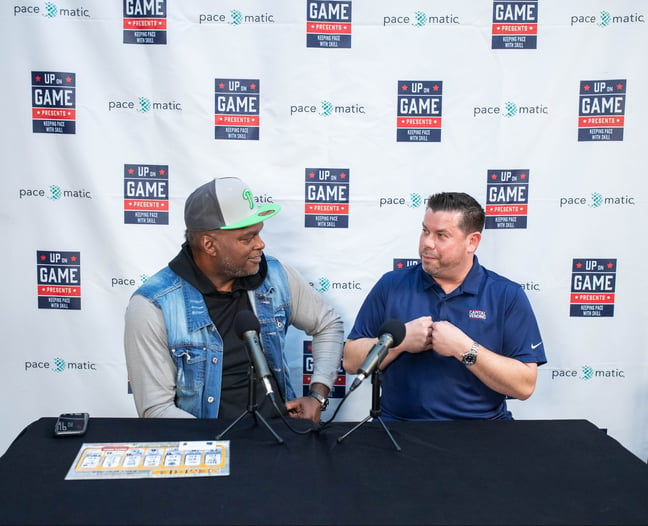
The amusement industry has witnessed significant changes over the decades, from 45-record jukeboxes in the '80s to CD jukeboxes in the '90s. The introduction of digital music with TouchTunes in the early 2000s marked a pivotal moment. However, the industry experienced a dip in the 2000s until the emergence of skill games.
Calla's first encounter with skill games came when Lou Miele introduced him to a small skill machine, emphasizing its potential for business growth. Initially cautious, it took Capital Vending a few months to understand and fully embrace this new technology. The company invested time in educating both employees and customers, paving the way for a successful integration of skill games into their offerings.
Within the first year of introducing skill games, Capital Vending noticed a substantial increase in revenue. This positive trend continued, leading to the hiring of additional employees and the ability to upgrade existing equipment. Small businesses, including bars and taverns, experienced a boost in revenue, enabling them to make improvements such as infrastructure upgrades, staff incentives, and even offering healthcare benefits.
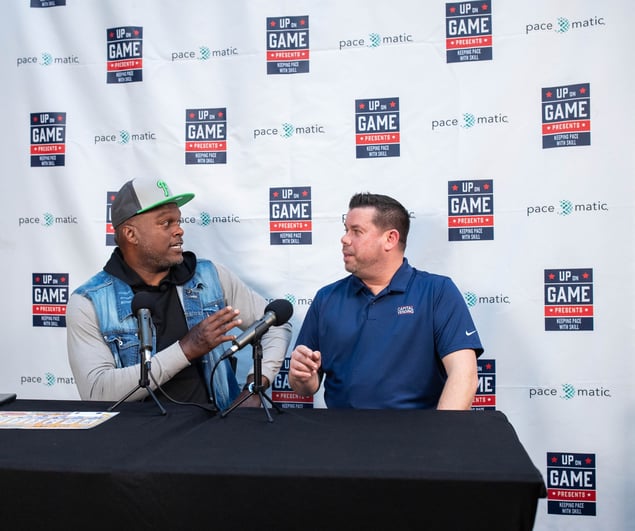
COVID-19 posed challenges for the amusement industry, especially with the temporary closure of bars and restrictions on indoor dining. However, Capital Vending adapted by implementing creative solutions, such as placing speakers outside to continue generating jukebox revenue. Despite the hurdles, the company bounced back in 2021, and many locations under their service reported their best year ever.
Calla emphasizes the need for the regulation and taxation of skill games. By cleaning up the market and limiting the number of machines and their locations, he believes it would benefit both the industry and the state, generating additional tax revenue while ensuring responsible growth.
Calla’s interview highlights the positive impact of skill games on small businesses, demonstrating how they have been a driving force for growth, innovation, and resilience in the face of challenges. As part of Pace-O-Matic's More Than A Game campaign, stories like Joe Calla's showcase the multifaceted benefits of skill games, not just as entertainment but as catalysts for economic empowerment and community development.
Discover More Stories
Pace-O-Matic skill games aren’t just fun to play—they’re making a difference in small businesses across America.
Kentucky
In the bustling neighborhood of St. Matthews in Louisville, Kentucky, a small business owner named Jared Matthews has been making waves with his establishment, Fox Den. As part of the Pace-O-Matic More Than A Game campaign, we sat down with Jared to discuss the positive impact skill games have had on his business and the broader community. Within just six months of opening, Fox Den has become a local hotspot, offering patrons a unique blend of entertainment, camaraderie, and a chance to win some extra cash.
Matthews, the owner-operator of Fox Den, shared insights into his journey within the hospitality industry. Having worked for 14 years at Diamond, the predecessor to Fox Den, Matthews saw an opportunity to revitalize the space when the previous owner decided to exit the business. Opening its doors in April 2022, Fox Den underwent a significant facelift with a focus on maintaining its pool tables, enhancing the menu, and infusing a chef-driven club fare. Little did Matthews know that the addition of skill games would be a game-changer for his small business.
Matthews stumbled upon skill games through a friend who suggested he explore this innovative form of entertainment. Intrigued, he connected with Seth, a representative from the skill games provider. Initially hesitant, Matthews decided to introduce two skill games machines in Fox Den. The response from patrons was overwhelmingly positive, leading to the addition of two more machines.
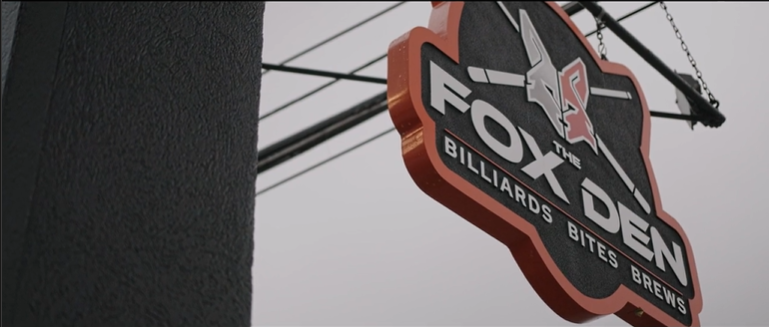
Within the first month, Fox Den started generating revenue through skill games, with each subsequent month’s revenue surpassing the previous month’s. The combination of pool, music, sports, and skill games created a vibrant atmosphere, especially during football season and colder weather. The skill games not only added to the overall experience but also proved to be a valuable source of additional income for the establishment.
Matthews emphasized the financial benefits of skill games for small business owners. Running bars and restaurants involves significant expenses, and skill games provide an extra income stream without requiring extensive management. The ease of operations— a dedicated service provider handles all deposits and reporting—allows business owners to focus on core operations while generating extra revenue.
Skill games revenue has been instrumental in addressing maintenance costs and periodic upgrades at Fox Den. From rebuilding pool tables every six months to general improvements, the additional income from skill games has facilitated necessary enhancements without straining the business financially.
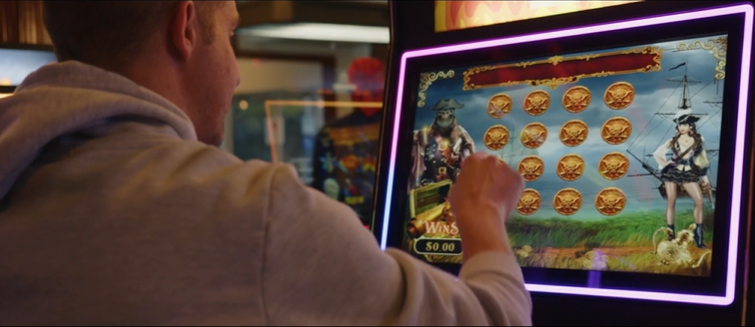
Matthews highlighted the importance of the TRT, or money machine, a service he insisted on including for integrating skill game machines. This automated system streamlines payouts, significantly reducing labor costs, minimizing human error, and allowing staff to focus on customer service rather than manual transactions.
Fox Den has become an integral part of the St. Matthews community, drawing in diverse patrons, including pool enthusiasts, music lovers, and sports fans. Skill games have added an extra layer of enjoyment, providing a unique entertainment option that contributes to the local economy. The money generated through skill games also supports initiatives aimed at giving back to the community, such as contributing to the Apron organization, which aids service industry workers in times of need.
Matthews addressed the misconception that skill games compete with casinos or horse tracks. He emphasized that skill games offer a distinct and casual entertainment experience, catering to a different audience. Unlike the grandeur of a casino visit, Fox Den provides a neighborhood pub atmosphere where patrons can relax, enjoy a game of pool, watch sports, and engage in skill games without the pressure of a high-stakes casino environment.
When asked about the potential impact of legislative changes regarding skill games, Matthews underscored their importance to small businesses. Skill games revenue significantly contributes to Fox Den's financial stability, covering bills and providing a cushion during challenging times. Removing skill games could have a substantial impact on the livelihoods of small business owners who rely on this additional income stream.
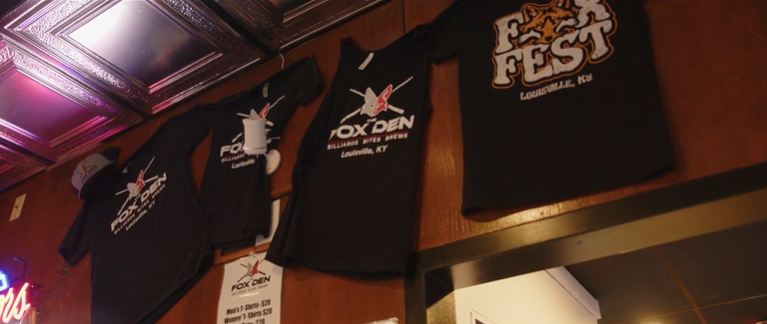
Reflecting on the challenges faced during the COVID-19 pandemic, Matthews shared the experiences of operating multiple restaurants during uncertain times. While some establishments faced closure due to the pandemic's economic impact, Fox Den adapted and thrived, thanks in part to the positive contribution of skill games revenue.
Matthews’ connection to St. Matthews, where he grew up and now resides, adds a layer of authenticity to Fox Den's role in the community. Describing St. Matthews as a neighborhood where people live, hang out, and support local businesses, Jared emphasized the importance of Fox Den being a local hub where regulars feel at home.
Matthews' journey with Fox Den showcases the transformative impact skill games can have on small businesses. From financial stability and community engagement to philanthropy, skill games have proven to be more than just a source of entertainment. They catalyze local economic growth, providing small business owners like Matthews with the means to thrive and give back to the communities they serve. As the debate around skill game legislation continues, stories like Fox Den's underscore the positive contributions and resilience of small businesses in the face of challenges.
Discover More Stories.
Disclaimer: The above interview reflects experiences from when skill games were previously operating in Kentucky. The games have since been disabled in compliance with state law. If you are interested in supporting skill games in Kentucky, please visit www.joinkymac.com.
Pace-O-Matic skill games aren’t just fun to play—they’re making a difference in small businesses across America.
Virginia
Queen of Virginia Skill games have become a crucial lifeline for small business owners like Adnan Shaikh, who runs two 7-Eleven convenience stores in Dumfries and Woodbridge, Virginia. Adnan shared insights into the transformative impact of skill games on his business and employees.
With nearly two decades of experience in the retail sector, Adnan's journey from a sales associate to a franchise owner reflects his deep-rooted passion for entrepreneurship. His knack for business was honed long before he ventured into the convenience industry, having pursued a bachelor's degree in business and engaging in entrepreneurial endeavors in his native country, Pakistan.

Running a convenience store isn't without its challenges, as Adnan candidly highlights. The 24/7 nature of the business demands constant vigilance, with the unpredictability of employee availability and daily operations posing significant hurdles. However, amidst these challenges, the introduction of skill games brought a new dimension to Adnan's business landscape.
Skill games, an addition to the Northern Virginia gaming scene, presented Adnan with an opportunity to diversify his revenue stream and enhance customer engagement. Despite facing initial delays in obtaining approval for skill games, Adnan's perseverance paid off, making his stores among the first in the area to offer these enticing attractions.

The impact was immediate and profound. Adnan witnessed a surge in foot traffic and revenue as customers flocked to experience the thrill of skill games. The influx of patrons not only boosted game-related revenue but also translated into increased sales across other store offerings like food and beverages, further solidifying the games' positive impact on his bottom line.
Moreover, the revenue generated from skill games empowered Adnan to invest in his business, from hiring additional staff to ensuring a seamless and enjoyable customer experience. As a result, his stores became bustling hubs of activity, fostering a sense of community and camaraderie among patrons and employees alike.
However, the journey had its setbacks. Periodic bans on skill games, such as the six-month hiatus in 2020 and a ban in 2023, dealt significant blows to Adnan's business. The abrupt loss of revenue jeopardized not only his financial stability but also the livelihoods of his employees, many of whom depend on their jobs to support themselves and their families.

Adnan's impassioned plea to legislators underscores the critical importance of skill games to small businesses like his own. Beyond mere entertainment, these games serve as lifelines, sustaining livelihoods and fostering economic growth within local communities. Adnan's story is a poignant reminder of the profound impact that policy decisions can have on small businesses and the lives they touch.
In essence, Adnan Shaikh's experience epitomizes the ethos of our More Than A Game campaign. Skill games aren't just about entertainment; they're about empowerment, resilience, and the collective well-being of communities. As policymakers deliberate on the future of skill games, Adnan's voice serves as a reminder of the human stories behind these seemingly simple diversions.
Pace-O-Matic skill games aren’t just fun to play—they’re making a difference in small businesses across America.
Virginia
In the bustling world of small business ownership, every penny counts. For Ashraf Ahmed, a dedicated 7-Eleven franchise owner, the introduction of skill games has been nothing short of a game-changer. Ahmed shared insights into how these skill games have transformed not only his business but also the lives of his employees and the community at large.
Ahmed's journey began in 1993 when he started as a sales associate in the United States. Over the years, through hard work and dedication, he rose through the ranks to become a franchisee in 2006. His sole focus now revolves around running his 7-Eleven store, emphasizing the importance of sustaining and growing his business.
Skill games entered Ahmed's entrepreneurial landscape, offering a beacon of hope amidst the challenges of escalating labor costs and the struggle to find quality employees. These games brought in a significant influx of revenue, providing much-needed relief to Ahmed and his team. As he puts it, "When skill games came, we relaxed. We make money and we pay money, then we don't feel anything."

The impact of skill games extends beyond monetary gains. Ahmed highlights how they've fostered a sense of security for both employees and customers, particularly during late-night hours. Regular customers engage in gameplay, enhancing the store's ambiance while contributing to additional purchases, thus boosting overall sales.
Moreover, skill games have empowered Ahmed to give back to his community. With surplus earnings, he has been able to support local schools, events, and neighbors in need. This cycle of support creates a ripple effect, enriching the fabric of the community and fostering goodwill among all stakeholders.
However, looming regulatory challenges threaten to disrupt this positive trajectory. Ahmed's concern is palpable as he contemplates the potential consequences of losing skill games. Not only would it jeopardize his business's survival, but it would also impact his employees, forcing them to seek alternative employment avenues.

In advocating for the retention of skill games, Ahmed underscores their role in sustaining small businesses and, by extension, the broader economy. His plea to legislators and community members is clear: support the game to nurture business growth and fortify the backbone of the economy. He acknowledges the importance of tax regulation but stresses the need for a balanced approach that preserves the benefits of skill games for small businesses.
In conclusion, Ahmed's story epitomizes the transformative power of skill games in the realm of small business. Beyond mere entertainment, these games serve as a lifeline, providing stability, fostering community connections, and enabling entrepreneurial dreams to flourish. Our More Than A Game campaign continues to amplify such narratives and the profound impact of skill games on businesses and communities alike.


How Q Skill Games Helped Buffalo Wild Wings Give Back to Their Employees
Virginia
January 28, 2022
Success


How PA Skill and Primanti Brothers in Erie, PA are Winning In Their Community
Pennsylvania
June 10, 2022
Success
.png)
BJ Novelty and Burning Barrel Join Forces to Give New Purpose To Skill Gaming
Kentucky
February 15, 2022
Success
.png)
The Positive Impact Of Pennsylvania Skill For A Single Mother
Pennsylvania
February 20, 2023
Success
.jpg)
The Queen Of Virginia Skill Game That Saved A Local Bar And Community
Virginia
March 1, 2023
Success
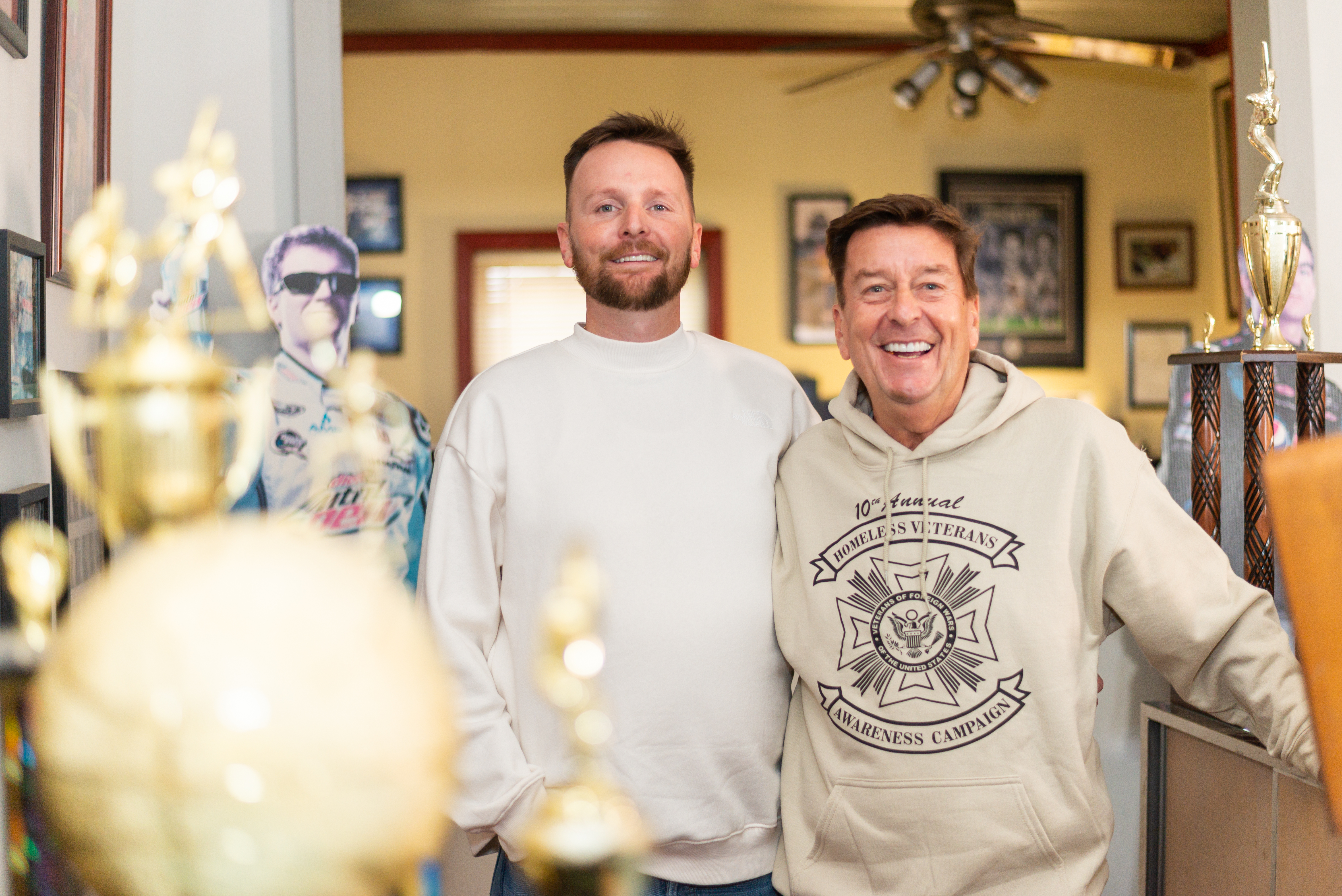
Pennsylvania Skill Games Transforming Lives Through Community Impact
Pennsylvania
May 31, 2023
Success
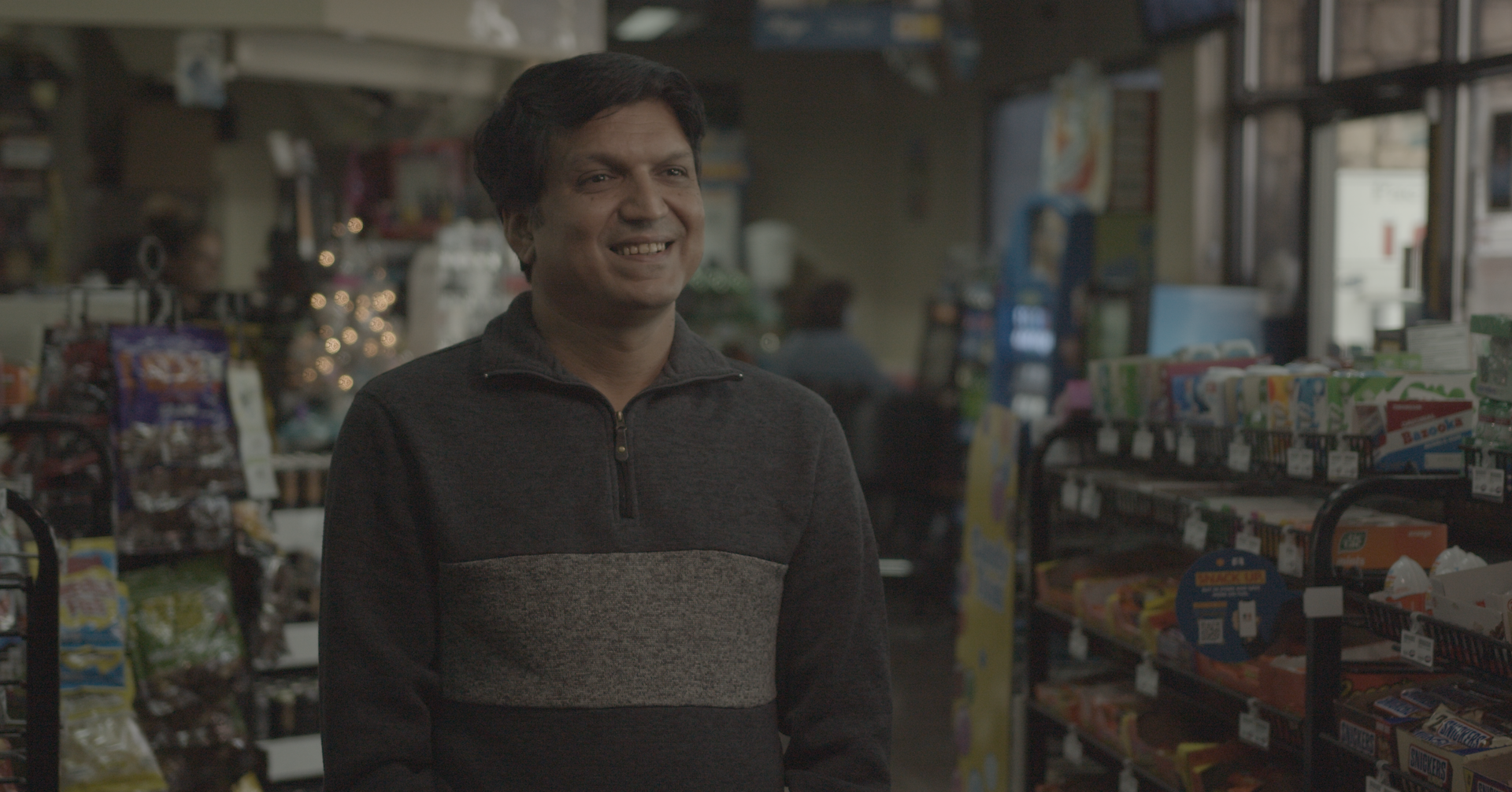
A Skillful Journey Of Business And Community Growth With Burning Barrel
Kentucky
March 29, 2023
Success

A Skill Game Operator's Perspective On Burning Barrel Revitalizing Small Businesses
Kentucky
May 18, 2023
Success

Navigating Resilience And Tradition With East Coast Amusements With Queen Of Virginia Skill
Virginia
May 6, 2023
Success
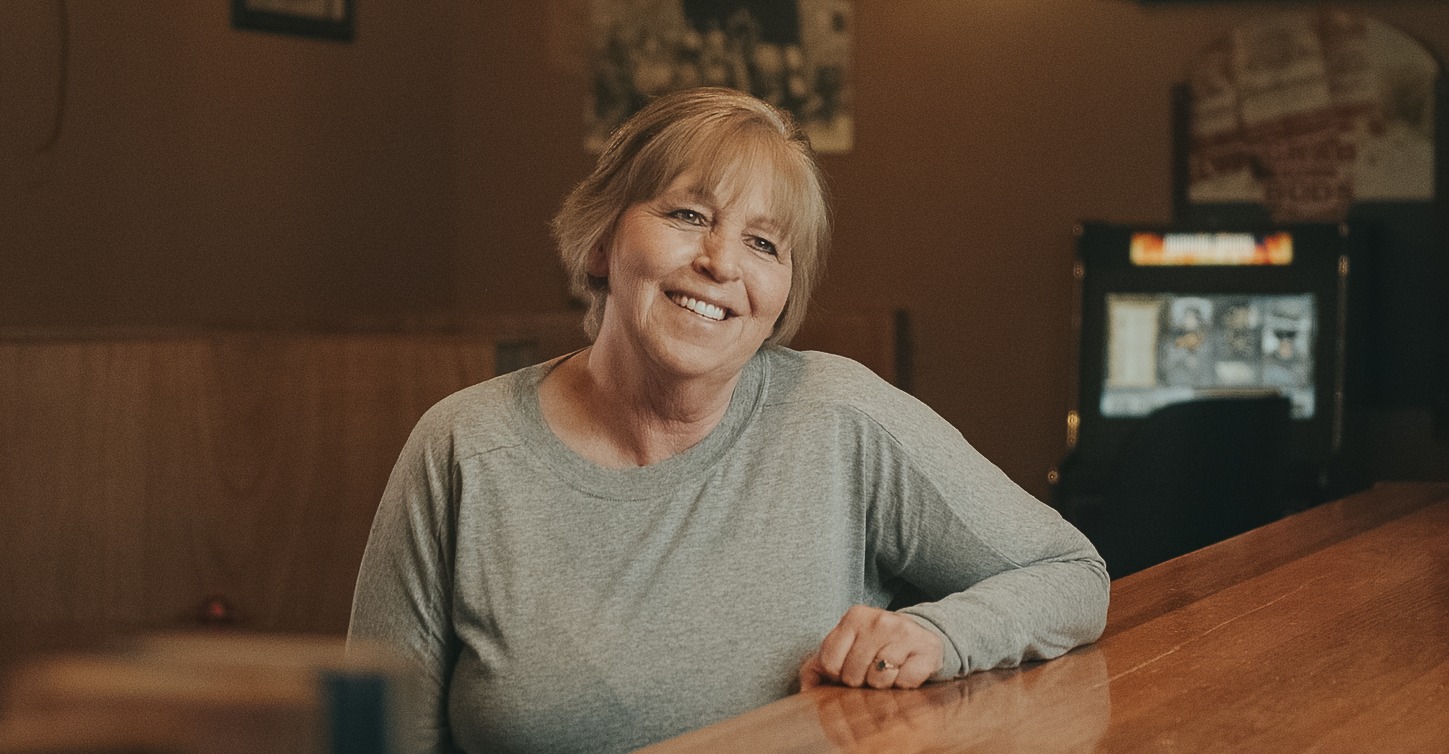
Skill Games Continue To Transform Lives, Communities, And Businesses
Kentucky
April 26, 2023
Success Bar Restaurant
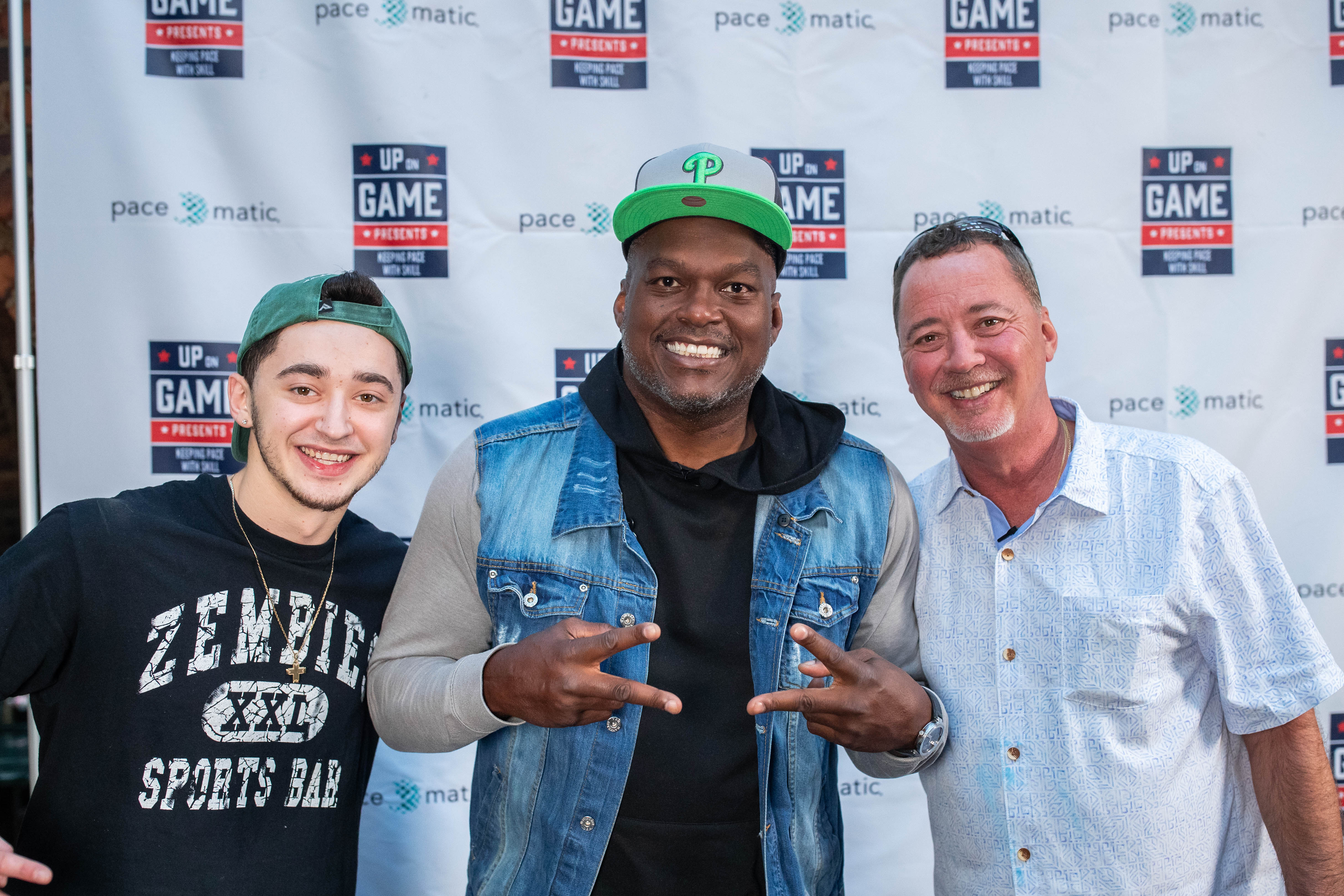
A Bar Beyond Games: Angelo Zembies' Journey And The Role Of Skill Games At Zembies
Virginia
June 14, 2023
Success Bar Restaurant
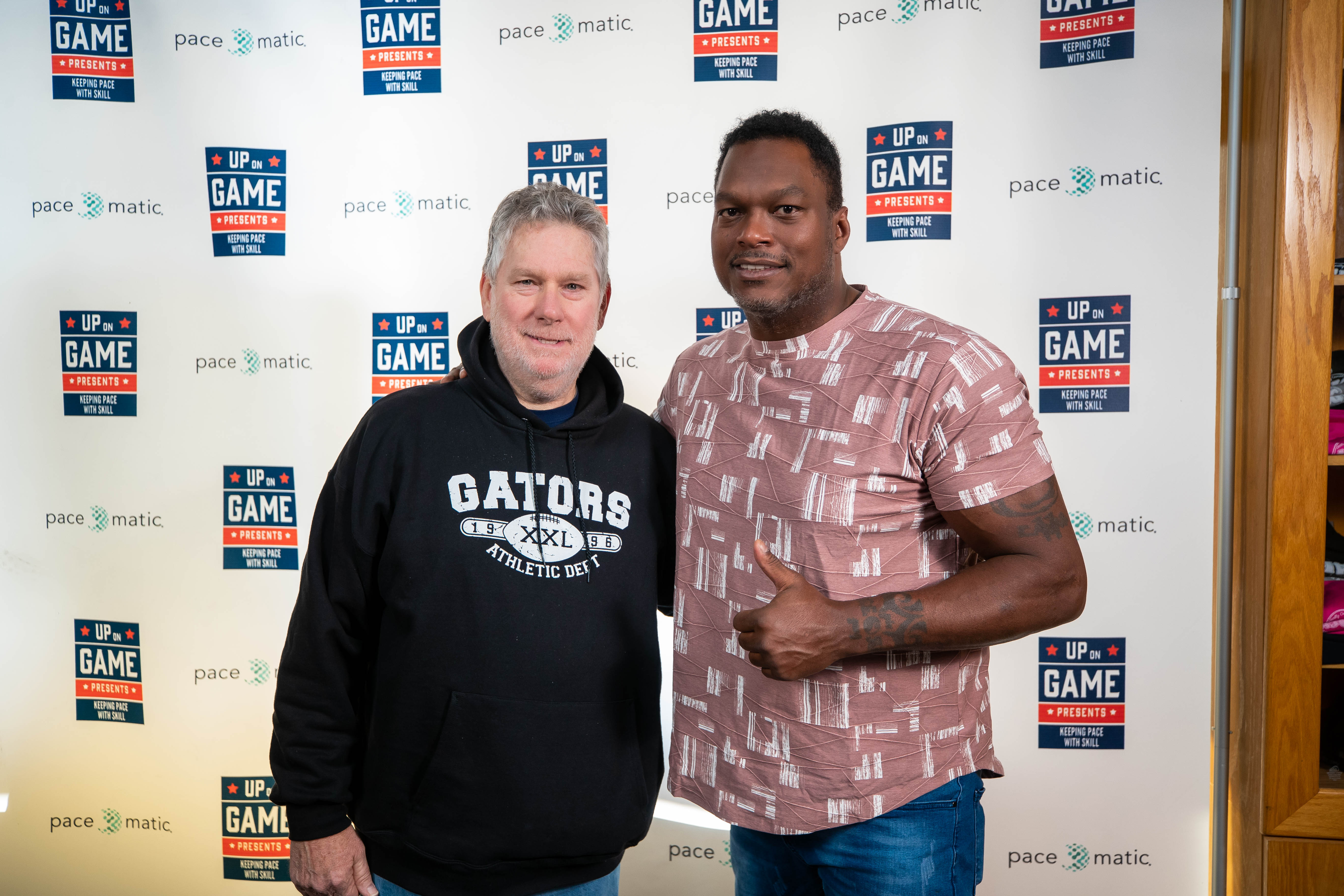
The Queen Of Virginia Skill Games Became The Heartbeat Of Small Businesses
Virginia
June 27, 2023
Success Bar Restaurant
-1.jpg)
Unveiling The Human Side Of Sports Legends And Queen Virginia Skill Games
Virginia
July 17, 2023
Success Restaurant
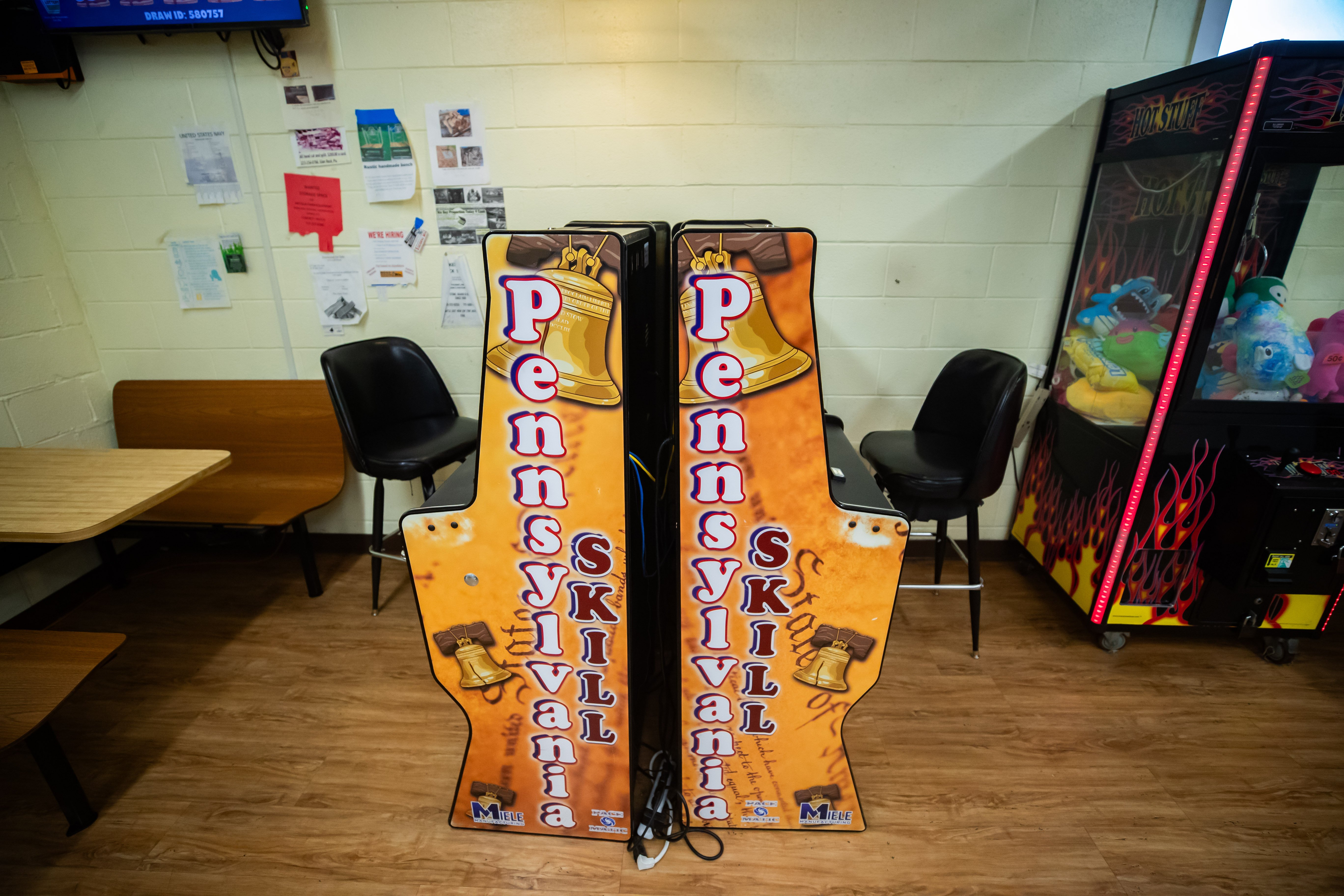
The Positive Impact Of Pennsylvania Skill Games On Small Businesses: A Conversation With Luke Gacci
Pennsylvania
August 31, 2023
Success Restaurant
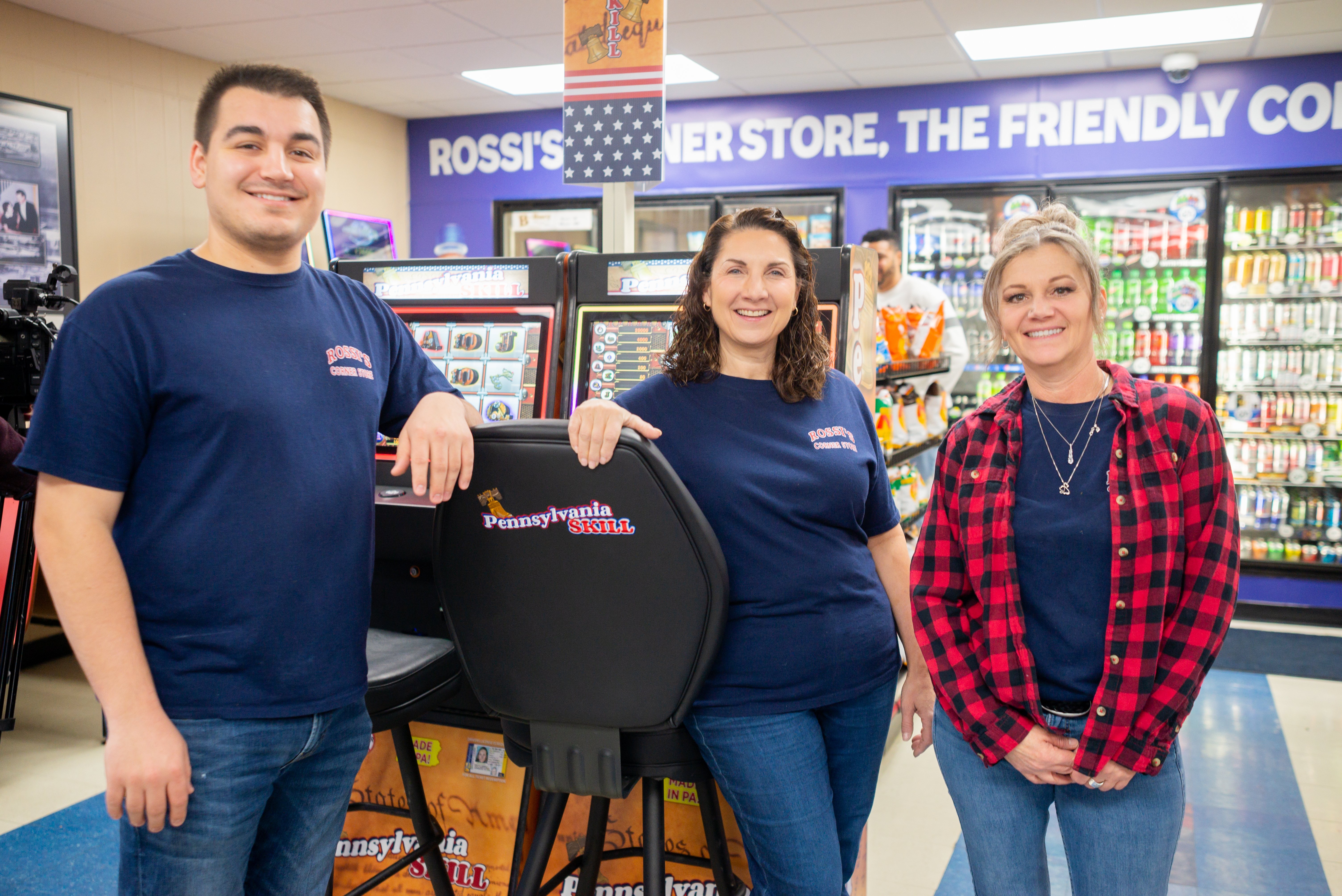
Rossi's Corner Store: A Small Business Thriving With Skill Games
Pennsylvania
February 26, 2024
Success Community
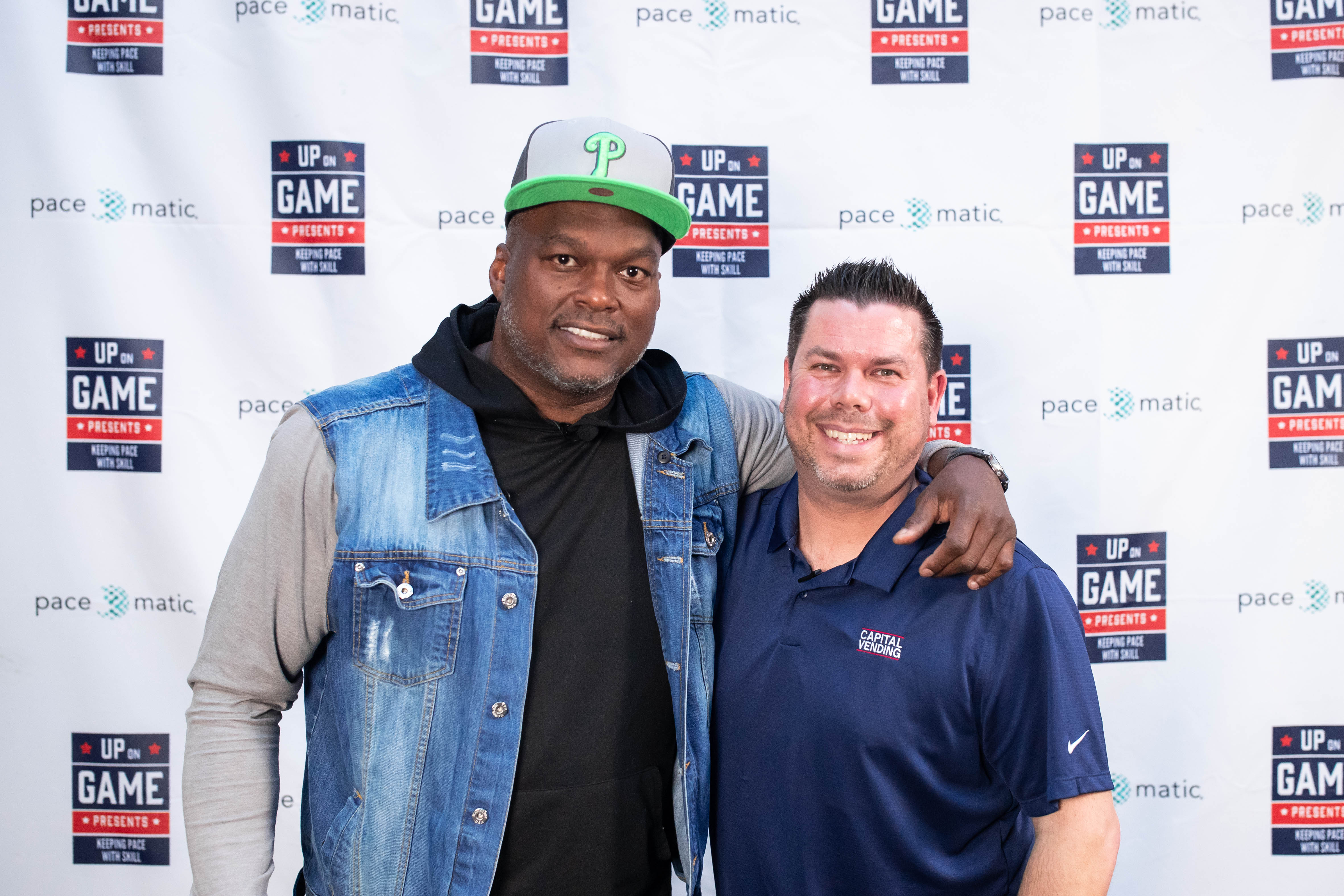
Small Business Triumph: The Transformative Power Of Skill Games
Pennsylvania
March 20, 2024
Success Support Partnership
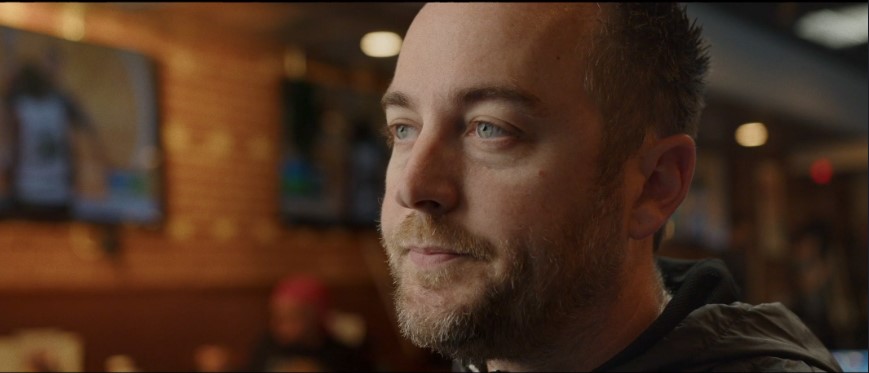
Mastering Skill Games: A Blueprint For Small Business Growth
Kentucky
March 27, 2024
Success Support Restaurant + Bar Partnership
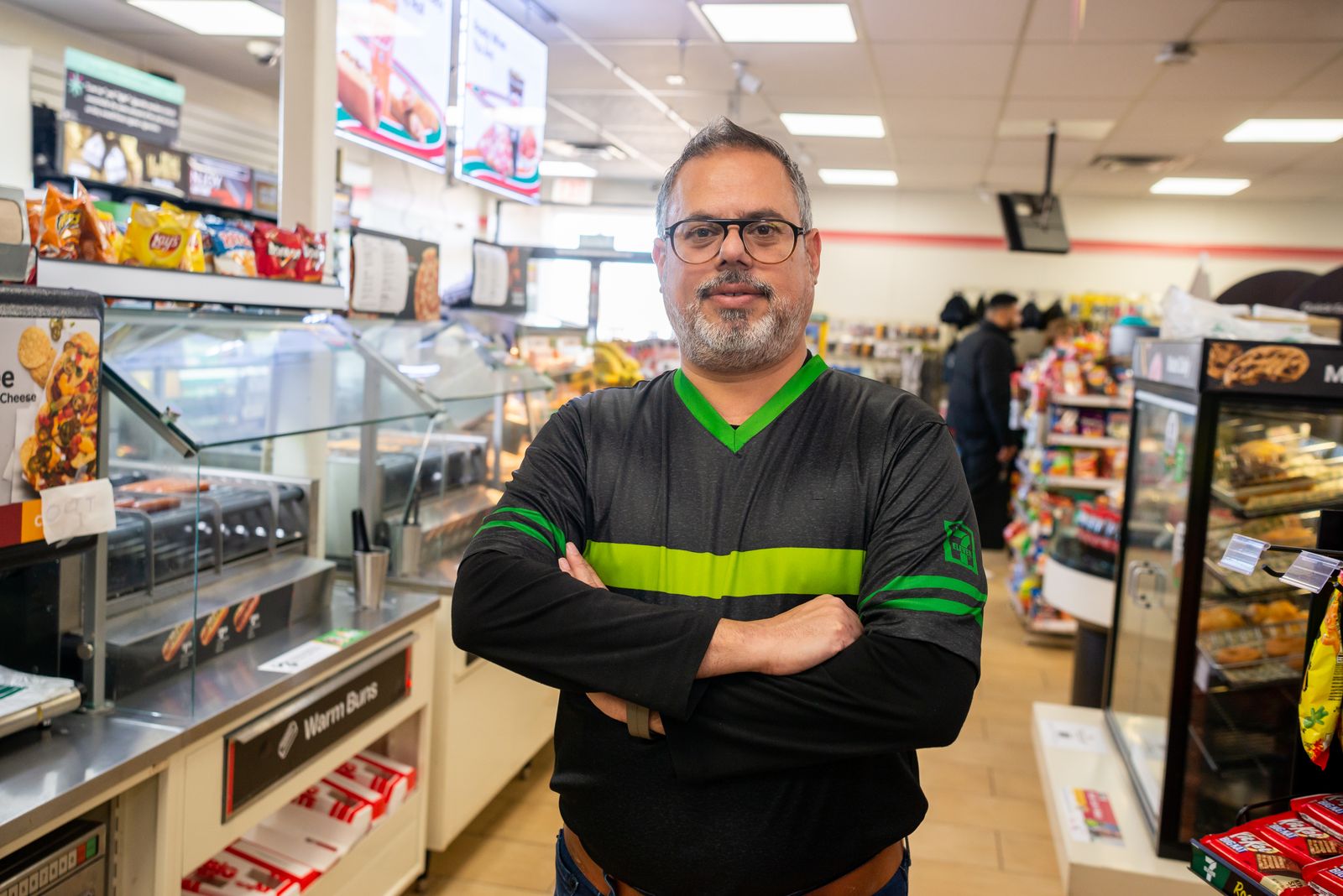
7-Eleven's Winning Formula: Skill Games, Small Business, And Success
Virginia
May 21, 2024
Partnership Success
Virginia
Glory Days Grill in Burke, VA offers a fun experience for sports fans and families looking for a lively atmosphere with delicious food. Q Skill Games set out on a mission to add a different layer of excitement for both the customer and the business. Since implementing Q Skill Games at Glory Days Grill, customers have been able to win cash prizes based on their level of expertise and the business has experienced additional revenue for them to continue reinvesting in the business their customers know and love.
In addition, these skill games have brought in organic foot traffic, leading to more food and beverage sales. Every purchase matters and can be pivotal to the growth of this small business. Their commitment to bettering the customer experience while reinvesting in their business is what sets them apart from other sports bars and grills in the area.
Virginia
Buffalo Wild Wings is a well-known American restaurant chain, popular for its casual dining and sports bar atmosphere. The company has always been committed to its employees, and it has shown this through various initiatives. Recently, the company connected with Q Skill Games to get skill-based games installed at certain locations in Virginia.
The partnership has been a huge success, with revenue generated from the games used to provide bonuses and incentives to Buffalo Wild Wings employees. The games have motivated staff and shown them that the company values their hard work and dedication.
Overall, the partnership between Buffalo Wild Wings and Q Skill Games has been a win-win. Guests enjoy entertainment and excitement, while hard-working employees benefit from the revenue generated from skill games.
Pennsylvania
Kentucky
For over 30 years, BJ Novelty has been a trusted provider of gaming machines to bars and establishments throughout Kentucky. While the company has established a strong reputation for quality and reliability, it was time to push the envelope further and give skill games a new purpose in each business they operate.
That's where Burning Barrel comes in. By partnering with BJ Novelty, Burning Barrel offers a fresh and exciting gaming experience for customers and a brand new way for businesses to grow and give back. Unlike traditional gaming machines, these skill games boost revenue in every small business so owners can finally accomplish financial goals, invest in their employees, and support the community they serve.
BJ Novelty has faced challenges in the gaming industry, but their partnership with Burning Barrel has helped them transform the meaning of skill games from simply a fun time to transforming businesses for the better.
Pennsylvania
In a heartfelt conversation with Courtney Caravella, a remarkable individual hailing from Newcastle, Pennsylvania, we delved into the transformative power of Pennsylvania Skill games and how they have not only changed her life but also influenced those in her immediate circle. Courtney, a devoted single mother and dedicated student at the University of Pittsburgh, shared the incredible impact that her involvement with Pennsylvania Skill has had on her life. Managing four locations now, she has been able to shift her focus from juggling multiple jobs to nurturing her own business while still bartending on weekends. This newfound balance has gifted her with precious moments to spend with her beloved son, resulting in a profoundly positive change in the daily life of this hardworking single mom.
"I think it's definitely a positive thing. It's made my life a lot easier. And for people in my position that it opens another door."
-Courtney Caravella
When asked about her message to the legislature, Courtney emphasizes the positive impact of Pennsylvania Skill, describing it as a game-changer that opens doors for people in similar situations. Her endorsement is grounded in the practical difference the games have made in her own life. How they became More Than A Game to her.
Virginia
Nora Barnes, owner of a local bar, shares her journey with skill games, or as she calls them, the "Green Machines." Nora opens up about the challenges her bar faced and how these machines not only became a financial lifeline but also a source of joy for the tight-knit community she serves. As Nora shares the impact of the COVID-19 pandemic, she explains how local businesses faced closure, and acknowledges that without the Green Machines, her beloved bar might have met the same fate as countless others.
"There's absolutely no way I could have stayed open without them," she admits.
Thinking back to the initial struggle, Nora paints a picture of a community in crisis. Money had to be kept behind the bar to pay employees, but with the arrival of the Green Machines, a wave of relief washed over her. "They saved me many times already," she says, explaining that her customers come in more often because of the games.
The community around Nora's bar found solace in Queen of Virginia Skill, creating an atmosphere of excitement and camaraderie. Nora recounts how her customers would eagerly wait in line on Friday nights, excited for their turn at the Queen machine. The machines not only became a source of entertainment but also played a pivotal role in maintaining the financial health of the bar.
.jpg?width=2048&height=1536&name=VA_Interview_BTS%20(21).jpg)
Nora reflects on the days when Queen of Virginia Skill was temporarily taken away due to legislative concerns. The games, no longer being played, left behind a loss of excitement, energy, and 20% of her business. Nora candidly expressed her frustration at the situation. She explained that convenience stores and gas stations seemed to escape the scrutiny, but she faced the threat of hefty fines and legal repercussions.
In the face of adversity, Nora's determination, and the support of her community prevailed. Queen of Virginia Skill returned, and with them, a renewed sense of hope. Nora highlights the skill aspect of these games, emphasizing that winning involves more than just pressing a button. The machines brought back not only the thrill of winning but also a sense of engagement for her patrons.
As time went on, Nora became a passionate advocate for small businesses, urging legislators to recognize the vital role Queen of Virginia Skill games play in their survival. She sees them not just as a source of revenue but as a lifeline for struggling businesses, a sentiment echoed in the $140 million given to the state, a lifeline that saved businesses like Nora's.
The story of Nora Barnes and her bar is one of resilience, community, and the unexpected role that skill games played in preserving a local treasure. Nora's passion for her establishment and the community it serves is evident, and her plea for continued support for small businesses rings loud and clear. Queen of Virginia Skill is more than a game, it became a lifeline for Nora and countless others.
Discover More Stories

The above interview reflects experiences from when skill games were previously operating in Virginia. The games have since been disabled in compliance with state law. If you are interested in supporting skill games in Virginia, please visit www.joinvamac.com
Pennsylvania
In a small town like Lebanon, Pennsylvania, the impact of Pennsylvania Skill games goes beyond just entertainment—it's about fostering community, reviving the livelihood of organizations, and making a positive difference. William Shay, a proud resident of Lebanon and passionate advocate for Pennsylvania Skill games, shared his insights in an emotional interview with us, shedding light on the transformative power these games hold.
Revenue, he emphasized, is the driving force behind the widespread adoption of Pennsylvania Skill games in various establishments. In his words, he stated that these games have provided a lifeline of revenue that many businesses had never experienced before.
“I'm just going to be honest with you. These skill games have provided revenue that they haven't had before.”
– William Shay
Years ago, places like VFWs, moose lodges, and legions relied on small games of chance for supplemental revenue. However, these games offered only a limited percentage, and the state dictated how that percentage could be used within the organization. Enter Pennsylvania Skill games, and everything changed. Businesses saw a surge in revenue, enabling them to make significant contributions to their communities.

Shay vividly recalled witnessing establishments, such as VFWs, hiring additional employees and undergoing internal renovations because of the supplemental income. This newfound revenue didn't just stop at the barstools or coasters; it extended to vital community sponsorships. From little league teams to softball teams, these organizations became the backbone of support, all thanks to the financial boost provided by Pennsylvania Skill games.
One heartwarming example Shay shared is about his daughter's softball team, sponsored by the Lebanon Legion. Without the revenue generated by these skill games, such sponsorships might have become scarce, impacting the local sports scene, and depriving the community of these invaluable contributions.
The ripple effect of Pennsylvania Skill games is felt far beyond the doors of the establishments that host them. Shay shared a touching story about the Goodwill Fire Company in Myers town, teetering on the brink of closure. Before the arrival of these skill games, the Goodwill Fire Company struggled to keep its social hall running. Traditional fundraisers and campaigns fell short, and the organization faced imminent financial difficulty.
However, with the introduction of Pennsylvania Skill games, a ray of hope shone upon the Goodwill Fire Company. The consistent revenue stream provided by these games not only saved the social hall but also revitalized the sense of community within the area. The games became a lifeline, ensuring the doors stayed open and the community had a gathering place to call its own.
Shay further emphasized the unique nature of Pennsylvania Skill games. It's not just about the money; it's about consistency and enjoyment. Players find solace and stress relief in these games, creating a sense of community and camaraderie. For them, it's more than a game—it's a cherished pastime, a source of joy, and a refuge from the stresses of life.
Kentucky
In the heart of Frankfort, Kentucky, Al Patel runs Sell Food Mart, a bustling convenience store that has become more than just a place to buy groceries and snacks. Al, the proud owner, has been at the helm for nearly eight years, overseeing every aspect of the business, from paperwork to customer service, and even tending to the garbage.
Al enthusiastically shared the impact of Burning Barrel skill games on his business, which has become a highlight for customers. He explained how Burning Barrel had transformed the store's dynamics, creating a vibrant atmosphere where people spent more time and interacted with each other. Most importantly, the games contributed to the growth of the community.
The decision to introduce skill games in 2020 wasn't just a business move for Al; it was a strategic choice to keep customers engaged and entertained. Burning Barrel proved to be a hit. Al described customers lining up, reserving their spots, and even taking breaks to smoke outside before returning to play. It wasn't just a game; it was a part of their routine, a source of joy, and a bridge to community-building.
Al shared stories of customers who had won significant amounts, such as one individual who used his winnings to buy a new suit and another who invested in building a backyard chicken house. The skill games weren't just a form of entertainment; they were contributing to the local economy, keeping money within the community, and fostering a sense of connection among patrons.
.png?width=711&height=400&name=1%20(1).png)
The conversation shifted to the challenges posed by the pandemic. Al acknowledged the difficulties but emphasized how the store's strategic location, close to a busy highway exit and neighboring businesses like McDonald's, had helped overcome these hurdles. The skill games not only provided a source of entertainment but also ensured the safety of the store during nighttime hours, with customers feeling secure and employees working until closing time.
Al's commitment to reinvesting the profits back into the store showcased a dedication to maintaining a clean and welcoming environment. He spoke passionately about the upcoming renovations, including new gas pumps and a roof, illustrating how the success of the skill games was directly contributing to the store's physical improvement.
As Al shared his insights, it became evident that the skill games weren't just about making money; they were about creating a space for people to connect, enjoy, and contribute to the growth of their community. The success story of Sell Food Mart in Frankfort, Kentucky, serves as an inspiration for other convenience store owners to consider the multifaceted benefits of skill games – not just as a revenue stream but as a catalyst for community development and business sustainability.
Discover More Stories.
Disclaimer: The above interview reflects experiences from when skill games were previously operating in Kentucky. The games have since been disabled in compliance with state law. If you are interested in supporting skill games in Kentucky, please visit www.joinkymac.com.
Kentucky
At Past Time Bar and Grille, a seasoned operator named Ryan Gurevich, shared insights into the transformative impact of Burning Barrel on local businesses. In this exclusive interview, we delve into the evolving landscape of the gaming industry and its profound effect on the small community it serves. This small-town hub, where generations have gathered for meals, laughter, and games, holds a special place in Ryan's heart. His roots in the industry run deep, with a father boasting a 44-year career, instilling a passion for the business from a young age.
Trivend, the longstanding operator for Past Time, has weathered changes in ownership and the dynamic nature of the gaming industry for over 30 years. Ryan's insights into the ebb and flow of game preferences underscored the need for constant adaptation to keep the gaming scene vibrant and engaging.
The introduction of skill games marked a pivotal moment for Ryan and Trivend. Discovering their potential, Ryan swiftly reached out to distributors, leading to a positive meeting with Pace-O-Matic. The shared goal between Trivend and the skill game company was evident – to breathe new life into local establishments and provide a fresh gaming experience for the community.
Ryan's passion for the industry was palpable as he dispelled the misconception of the amusement industry's demise. While acknowledging the impact of smartphones on certain segments, he adamantly asserted that the industry, especially jukeboxes, would endure. Advancements in technology would continue to bring forth new and exciting games, ensuring the longevity of the gaming experience in bars, taverns, and restaurants.
Addressing the question of increased revenue, Ryan shared stories of hope for struggling small businesses. Establishments that had faced challenging times during the past two years saw a positive influence on revenue streams with the introduction of skill games. Traditional entertainment options, like jukeboxes, experienced a resurgence in interest as patrons engaged in skill games while enjoying their favorite tunes. The symbiotic relationship between skill games and established entertainment options provided a much-needed boost for these businesses.
As Ryan reflected on the challenges faced by small businesses during difficult times, he underscored the emotional impact of removing skill games. Taking away a newfound revenue stream struck a nerve, especially after enduring the COVID-era shutdowns and uncertainties. Ryan expressed concern for the emotional well-being of the community, stating that such a decision was a betrayal of the very essence of small-town America.
Ryan's story is more than a testament to the success of skill games; it's a narrative of resilience and community. The games not only revitalized revenue streams but also rekindled the spirit of camaraderie in local establishments. As Past Time and countless other small businesses continued to navigate the path to recovery, skill games were a beacon of hope, proving that they are indeed "More Than A Game."
Discover More Stories.
Disclaimer: The above interview reflects experiences from when skill games were previously operating in Kentucky. The games have since been disabled in compliance with state law. If you are interested in supporting skill games in Kentucky, please visit www.joinkymac.com.
Virginia
Where tradition meets innovation, a captivating conversation unfolds with Andrew Thompson, a key player in the thriving skill game industry. He takes us through the intricate tapestry of East Coast Amusements, a third-generation family-run business.
Andrew Thompson, a part-owner alongside his brothers, showcases a deep sense of pride as he recounts his roots in Wichita, the journey to Atlanta in 2008, and the final settlement in Richmond. For Andrew, East Coast Amusements isn't just a business; it's a legacy, a tradition passed down through generations.
The dialogue goes beyond the strategic decisions and business insight. Andrew shares the sentimental connection to the industry, how it's not just a job but a commitment to carrying forward a family tradition. The decision to embrace skill games becomes more than a business move; it's a pledge to uphold a legacy.
Navigating through challenges, he dives into the impact of the legislation that momentarily silenced Queen of Virginia Skill. A six-month hiatus during the pandemic wasn't just a setback for East Coast Amusements; it was a blow felt by the entire community. The resilience of small businesses, upheld by skill games, emerges as a powerful narrative.
December 6, 2021, a pivotal day, marked the turning point. The impactful decision breathed life back into the skill games, renewing hope for Andrew, as he describes the immediate surge in sales and the profound relief for local businesses.
In adversity, East Coast Amusements stands tall, representing more than just a company—a collective voice advocating for the survival of small enterprises. His story becomes a testament to the resilience of those who found solace and support in skill games during challenging times.
Behind the scenes, Andrew sheds light on the unique TRT (Ticket Redemption Terminals) machines, ensuring not just entertainment but security for convenience store owners. It's not about profits alone; it's about fostering an environment where everyone feels secure and valued.
In the backdrop of uncertainty, Queen of Virginia Skill emerges as a beacon of hope for businesses and communities. Andrew speaks of the potential of extra revenue—how it fuels renovations, employee raises, and expansion into new areas. It's not just about survival; it's about growth and prosperity.
East Coast Amusements has become more than a company; it's a lifeline for local businesses, a guardian of tradition, and a symbol of resilience. Queen of Virginia Skill transcends entertainment; it's a lifeline for communities striving to thrive in the face of challenges.
Discover More Stories
Kentucky
For Bourbon Barrel Bar and Grill in Paris, Kentucky, bringing in Burning Barrel's skill games wasn't just about adding an element of fun; it was a strategic move that breathed new life into their business. Kathy and Martha, the proud owners, emphasized the importance of community and family vibes within their establishment. The restaurant wasn't just a place to dine; it was a hub where patrons were treated like family, fostering a welcoming environment for locals and travelers alike.The COVID-19 pandemic, with its economic challenges, tested the resilience of many businesses. Bourbon Barrel wasn't exempt. However, the community's unwavering support, coupled with the introduction of skill games, acted as a lifeline. When pandemic restrictions forced curbside operations, loyal customers continued to show up, supporting the restaurant through tough times.
The decision to incorporate skill games wasn't solely about generating revenue. It was a strategic move to diversify income sources and help navigate the uncertainties due to the pandemic. Kathy and Martha believed that these games would not only attract new customers but also provide a fresh, entertaining experience for existing ones. And indeed, it did. The games brought in new faces and a hopeful new future for the restaurant.
The impact of these games extended beyond entertainment. They became a source of extra revenue, which supported the establishment since bringing them on. The winners within the community didn't just celebrate their luck; they reinvested, boosting the local economy by spending their winnings back at the restaurant, strengthening the community's financial fabric.
Moreover, the games weren't just about chance; they were games of skill. Kathy ensured that patrons understood the games, guiding them through the intricacies and fostering an atmosphere of enjoyment and healthy competition. This approach didn't just enhance the gaming experience; it encouraged camaraderie among players, creating an environment where patrons cheered each other on.
In essence, while the games added a layer of entertainment and revenue, they also fostered a sense of community spirit, supported the local economy, and strengthened the familial bond within the restaurant. The Bourbon Barrel Bar and Grill's decision to embrace skill-based games wasn't just about business diversification; it was a testament to their commitment to their patrons and the community they serve.
Discover More Stories.
Virginia
At Zembie’s, our skill games aren't merely a form of entertainment; they've become a cornerstone of the bar's resilience, especially during challenging times like the COVID-19 pandemic. Queen Virginia Skill didn't just provide an additional source of revenue; they served as a lifeline for the establishment, ensuring its survival and enabling it to support its dedicated staff.
Amidst economic uncertainties and restrictions, skill games provided stability. Angelo's dedication to his employees was unwavering. He ensured that his staff received the support they needed, including covering rent and making necessary upgrades to the bar. This commitment wasn't just about business; it was a testament to his sense of responsibility towards his team, and a testament to the bar's role in the lives of its employees.
Beyond financial sustenance, Zembie’s' engagement with skill games radiated positivity throughout the community. It was more than just a local bar; it was a communal hub. The donations made to charitable causes like Alzheimer's organizations and UCP underscored the bar's commitment to giving back. Skill games didn't just enrich the bar; they became a catalyst for philanthropy, enabling Zembie’s to contribute meaningfully to causes that resonated with its patrons.
Additionally, skill games at Zembie’s were a testimony to responsible gaming practices. Angelo's adherence to regulations and ensuring that the gaming environment was enjoyable and safe for patrons elevated the bar's reputation. By maintaining an age-restricted policy and providing guidance to customers, Zembie’s created a space where people could engage in recreational gaming responsibly, fostering an atmosphere of trust and reliability.
Furthermore, the positive impact of skill games transcended the financial realm. While they undoubtedly contributed to the bar's bottom line, they also added a new dimension to patrons' experiences. It wasn't just about playing a game; it was about enhancing the overall ambiance. These games provided an avenue for customers to enjoy their time at Zembie’s further, fostering a sense of community and entertainment.
In conclusion, while the conversation between LaVar Arrington and Angelo Zembies showcased the camaraderie and humor at Zembie’s, the positive influence of skill-based games extends far beyond the anecdotes shared. They've been instrumental in sustaining the bar's operations, supporting its employees, fostering a culture of responsible gaming, and enabling philanthropic endeavors. Skill games at Zembie’s are not just about fun; they've become a crucial component in fortifying the establishment's relationship with its patrons and the broader community.
Discover More Stories

Virginia
At Virginia Beach, where the waves meet the sand and the community thrives, local restaurant AJ Gators stands as a testament to resilience and community spirit. LaVar Arrington, known for his prowess on the field, takes a moment to sit down with Al Zuhar, the man behind the legendary AJ Gators, to delve into the challenges faced by small businesses and the lifeline provided by skill games.
AJ Gators, a staple in the community, recently celebrated its 25th anniversary. For Al Zuhar, the journey has been more than just running a business; it's been about creating a space where people gather, create memories, and build a community. AJ Gators is not just a restaurant; it's a hub where families have worked for generations, a place where patrons become part of the extended family.
LaVar Arrington, passionate about championing small businesses, commends AJ Gators for weathering the storms that come with the ever-increasing challenges of running a business. The conversation delves into the nitty-gritty of staying afloat, the impact of COVID-19, and the role skill games played in transforming the business landscape.
Al Zuhar emphasizes the critical role skill games have played in keeping the doors open. Al recounts how Queen of Virginia Skill became a game-changer, helping to maintain slower stores, keep employees on the payroll, and even contribute to community initiatives. The skill games weren't just a source of revenue; they became the lifeline that allowed AJ Gators to weather the economic turbulence.
The challenges faced by small businesses during the pandemic were obvious. Al Zuhar's voices know that his establishment is not just a place to eat and drink but a pillar in the community. Queen of Virginia Skill emerged as more than a form of entertainment; they became a financial backbone, enabling businesses like AJ Gators to continue their community-centric initiatives.
The discussion pivots to the tangible impact on patrons. Al Zuhar acknowledges the fluctuations in regular customers, highlighting the direct correlation between skill games and football. The gaming experience became integral to the overall ambiance of AJ Gators, influencing food and bar sales, and in turn, sustaining the business.
LaVar Arrington takes a moment to explore the philanthropic side of AJ Gators. Al Zuhar proudly shares the various ways they give back to the community, from sponsoring teams to hosting fundraisers. The fabric of the community, as LaVar describes it, is intricately woven with contributions from establishments like AJ Gators.
The conversation concludes with a glimpse into the potential future of AJ Gators. Queen of Virginia Skill, coupled with community support, has not only kept the business afloat but has enabled plans for expansion. Al Zuhar's aspirations for a new space adjacent to the existing establishment underscore the significance of skill games in not just maintaining but enhancing small businesses.
"More Than A Game" isn't just a campaign slogan; it's a testament to the relationship between skill games, small businesses, and the communities they serve. AJ Gators isn't just surviving; it's thriving, proving that sometimes, a game can be more than just a game—it can be a lifeline, a community builder, and a beacon of hope in challenging times.
Discover More Stories
Virginia
In the world of sports, where precision and strategy often take center stage, it's easy to forget that the players we idolize are more than just competitors. They are individuals with stories, emotions, and connections that extend beyond the confines of the game.
In a recent interview with Hermie Sadler and host of Up On Game Presents: Keeping Pace With Skill podcast, LaVar Arrington, we got a glimpse into the human side of sports legends, which left us feeling inspired and moved.LaVar Arrington, known for his legendary football career, and Hermie Sadler, a NASCAR great and successful businessman, demonstrated a side of themselves that went beyond the titles and achievements. The camaraderie between the two hosts was deep, creating an atmosphere of authenticity and relatability. They weren't just discussing Queen of Virginia Skill games; they were sharing life experiences, celebrating moments, and connecting with their audience on a personal level.
The interview took an unexpected turn towards the end, revealing a touching moment involving Hermie's daughter, Haley. LaVar suggested bringing Haley on the show to bid farewell, and what transpired next was nothing short of heartwarming. As the hosts coaxed a goodbye from the shy youngster, you could sense the genuine warmth and affection in their voices. It was a reminder that even in the fast-paced world of skill games and sports, there are moments that transcend competition and touch the core of what it means to be human.
It's refreshing to see individuals like LaVar and Hermie use their platform to showcase the human side of the industry. As LaVar expressed gratitude for another "legendary moment" with Hermie Sadler, the sentiment resonated beyond the podcast. It echoed the idea that these athletes, these icons, are more than the games they play. They are fathers and individuals who cherish the connections they make along their journey.
The emotional depth of the interview was a testament to the power of genuine human connection. It reminded us that in the realm of skill games and sports, it's the stories and shared moments that endure. The exchange between LaVar and Hermie wasn't just a scripted sign-off; it was a sincere acknowledgment of the blessings they've experienced, shared with the listeners who have become a part of their extended family.
More Than A Game aims to emphasize this very aspect—the human side of the players and the emotional connections that extend far beyond the game. It encourages us to look beyond the scores, statistics, and strategies and appreciate the individuals who make these games memorable.
So, as we immerse ourselves in the world of skill games, let's remember the words of LaVar Arrington: "You've been blessed with another legendary moment and a legendary conversation." It's a reminder that, indeed, these moments are more than just a game—they are a celebration of life, connection, and the shared joy that transcends the boundaries of competition.
Virginia
In a conversation with Alex Lee, owner of Taco Ssam, the significance of skill games in small business sustainability came to light. Beyond being a mere source of entertainment, these games became the unsung heroes during tumultuous periods like the COVID-19 pandemic.
Alex shared how skill games became the financial backbone for his business, by providing additional revenue when traditional streams were no longer reliable. The games represented a unique bridge between strategic gaming and steady income. This sit down with Alex highlighted how this new source allowed him to make plans for expansions, renovations, and employment opportunities for his business, and that furthered the local economy.
From learning about skill games to advocating their vital role in business, Alex emphasized the need for understanding skill games. For him, it's not just about playing; it's about engaging communities, fostering growth, and offering an alternative entertainment avenue that significantly bolsters small businesses.
The conversation underscored the potential legislative impact, where changes could hinder the remarkable contributions these games make to communities. Alex's viewpoint shed light on their societal value, drawing parallels between these games and popular entertainment venues, advocating for their role as community cornerstones.
Ultimately, the interview illuminated how skill games extend beyond gaming tables, becoming integral to community support, local economies, and the dynamic survival of small businesses in challenging times.
Pennsylvania
In the town of Cheswick, Pennsylvania, small businesses faced a challenging period three and a half years ago. Bars and taverns were struggling to retain patrons, with the competition from larger establishments making it difficult for mom-and-pop shops to stay afloat. However, a positive change was on the horizon in the form of Pennsylvania Skill games. Luke Gacci, a local advocate for these skill games, shares insights into the transformative impact they've had on the community in an exclusive interview.According to Luke Gacci, bars were grappling with the challenge of keeping patrons engaged beyond a couple of drinks. The introduction of Pennsylvania Skill games proved to be a game-changer. The skill games created an environment where patrons could stay longer, spend more money, and enjoy various entertainment options, revitalizing the local establishments.
Luke emphasizes that many small businesses owe their continued existence to Pennsylvania Skill machines. With larger competitors taking six-pack licenses from other restaurants, it became increasingly difficult for smaller establishments to compete. The revenue generated from skill games not only kept these businesses afloat but also enabled them to make significant improvements. From fixing roofs to renovating floors, the impact of Pennsylvania Skill games reached beyond entertainment, contributing to the overall betterment of the community.
One notable example shared by Luke is the Springdale veterans organization in Springdale, Pennsylvania. This century-old club was on the verge of deterioration before the introduction of Pennsylvania Skill machines. The organization, which hosts weddings in its hall, was struggling to maintain the venue's condition.
However, over the last three years, the revenue generated from Pennsylvania Skill machines played a pivotal role in transforming the Springdale veterans organization. With the newfound funds, they were able to completely redo their hall, turning it into a sought-after venue for weddings. The positive ripple effect extended further as they built a gazebo for wedding photographs, adding a touch of beauty to the surroundings.
Luke Gacci proudly mentions that these changes were not just about financial gains but also instilled a sense of pride in the community. The Springdale veterans organization became a thriving hub, booking weddings throughout the year and contributing to the overall charm of the town.
The More Than A Game campaign, powered by Pace-O-Matic, shines a spotlight on the positive impact of skill games like those in Pennsylvania. Luke Gacci's interview reveals a narrative of resilience, community support, and transformation.
Pennsylvania Skill games have become more than just entertainment; they have become a lifeline for small businesses, breathing new life into struggling establishments and fostering community pride. As the campaign continues, the story of Luke and the small businesses in Cheswick serves as a testament to the transformative power of skill games, bringing longevity to the patron experience and leaving a positive imprint on the fabric of local communities.
Pennsylvania
Virginia
In the community of Sterling, Virginia, nestled in Loudoun County, Richard Gladu, owner of a local convenience store, shares his journey of entrepreneurship and the transformative impact that Queen of Virginia skill games have had on his business. As part of the Pace-O-Matic More Than A Game campaign, Gladu's story stands as a testament to the positive influence that skill games can have on small business owners.
A seasoned professional in the food service industry, Gladu embarked on his entrepreneurial journey 22 years ago when he opened a convenience store in Sterling, Virginia. Initially a solo venture, the business has since grown with Gladu now supported by his wife and a dedicated team of 25 employees. The strategic location in a competitive market in Loudoun County presented a challenging yet promising landscape for Gladu's business.
Before delving into the positive impact of skill games, Gladu candidly discusses the challenges faced by his business, especially during the COVID-19 pandemic. A significant drop in foot traffic and customer counts posed a threat to revenue and overall business sustainability. In the midst of these challenges, Gladu recognized the need for innovative solutions to attract customers and boost revenue.
In a bid to enhance foot traffic and generate additional revenue, Gladu decided to introduce Queen of Virginia skill games to his convenience store. Initially hesitant, he observed other successful implementations and decided to incorporate a few machines into his store. The positive results were almost immediate, with foot traffic increasing and the games becoming a popular attraction for customers.
Gladu addresses the initial hesitations he had regarding the skill games, such as concerns about space utilization and uncertainties about the impact on the store's atmosphere. However, these concerns were quickly dispelled as the games seamlessly integrated into the store, bringing in a diverse range of customers.
The skill games proved to be a game-changer for Gladu's business, offering an additional source of revenue during challenging times. The revenue generated from the games directly supported payroll, covering the costs of 25 employees and contributing to the livelihoods of multiple families. The games also attracted new customers, leading to increased sales in other areas of the store, such as the sub shop and pizza counter.
Gladu highlights an unexpected benefit of the skill games: increased safety during overnight shifts. The games attracted players during late hours, contributing to a more vibrant and secure atmosphere in the store.
In addressing legislators, Gladu emphasizes the importance of supporting small businesses by allowing skill games to operate. He underlines the positive economic impact, both for businesses and the state, citing the substantial tax revenue generated by these games.
Gladu's success story exemplifies the positive impact of skill games on small businesses. Beyond entertainment, these games have become integral to revenue generation, community engagement, and even ensuring the safety of businesses during less busy hours. As small businesses continue to navigate challenges, skill games emerge as a valuable asset, contributing to their growth, resilience, and ability to support local economies.
Discover More Stories
The above interview reflects experiences from when skill games were previously operating in Virginia. The games have since been disabled in compliance with state law. If you are interested in supporting skill games in Virginia, please visit www.joinvamac.com
Virginia
In Sterling, Virginia, Holtzman Oil has been making waves in the fuel business for nearly five decades. With humble beginnings in Mount Jackson, Virginia, the company has expanded its footprint across the Shenandoah Valley, Maryland, and West Virginia and recently ventured into North Carolina. In a recent interview with Rick Koontz, the Vice President of Holtzman Oil, we delved into the company's journey and how skill games have played a pivotal role in shaping the success of small business owners associated with the company.
Koontz's journey with Holtzman Oil began 49 years ago when he joined the company as a high school sophomore. Under the dynamic leadership of Bill Holtzman, the company's founder, Holtzman Oil grew from a small operation to a business with 350 employees. Koontz highlights Holtzman's empowering leadership style, emphasizing the company's commitment to treating associates as partners rather than mere employees.
Supplying 150 locations, approximately 100 of which are owned by the company, Holtzman Oil has a unique business model that leases stores to individual operators. These operators, such as Rich Gladu in Sterling, play a crucial role in determining the success of each location. Koontz underscores the significance of having a good operator who is innovative, creative, and capable of adapting the store to maximize profitability.
The interview touches upon the introduction of skill games in Holtzman Oil's stores. While not a new concept, these games had a significant impact on smaller, more rural stores. Koontz notes that the skill games brought in additional revenue, foot traffic, and employment opportunities. The removal of these games, coupled with the challenges posed by the pandemic, adversely affected fuel volumes and overall store profitability.
Koontz praises operators like Gladu, who leverages innovation to enhance the store's offerings. The skill games not only increased merchandise sales but also provided a platform for operators to experiment with new ideas, such as introducing food options like pizza. The games, acting as a catalyst, have led to improved store merchandise, increased inventory, and more employment opportunities.
The conversation with Koontz also addresses the challenges faced when skill games were temporarily removed. He emphasizes the critical role these games play in ensuring the success of operators and urges elected officials to recognize their importance. Koontz advocates for reinstating revenue-sharing models that were in place before, as these games contribute significantly to the financial health of both operators and the state.
Rick Koontz sheds light on how skill games have become an integral part of Holtzman Oil's success story. The positive impact on small business owners, especially during challenging times, underscores the need for continued support and recognition of the vital role played by these games in sustaining local businesses and communities. As Holtzman Oil expands its reach, the More Than A Game campaign stands as a testament to the transformative power of skill games in small businesses.
Discover More Stories
The above interview reflects experiences from when skill games were previously operating in Virginia. The games have since been disabled in compliance with state law. If you are interested in supporting skill games in Virginia, please visit www.joinvamac.com
Pennsylvania
In an interview with Joe Calla, President of Capital Vending, as part of Pace-O-Matic's More Than A Game campaign, we delved into the transformative journey of how skill games have significantly impacted small businesses, especially in the amusement industry. This insightful conversation with Calla sheds light on the evolution of the amusement business, the introduction of skill games, and the positive outcomes experienced by both business owners and their locations.
Based in Harrisburg, Pennsylvania, Capital Vending has been a family business since the 1960s. A second-generation owner, Calla joined the business in 1996. Over the years, the company has evolved from traditional amusements like CD jukeboxes and video games to becoming a comprehensive amusement service provider, offering a diverse range of equipment to bars, taverns, clubs, bowling alleys, and more across central Pennsylvania.

The amusement industry has witnessed significant changes over the decades, from 45-record jukeboxes in the '80s to CD jukeboxes in the '90s. The introduction of digital music with TouchTunes in the early 2000s marked a pivotal moment. However, the industry experienced a dip in the 2000s until the emergence of skill games.
Calla's first encounter with skill games came when Lou Miele introduced him to a small skill machine, emphasizing its potential for business growth. Initially cautious, it took Capital Vending a few months to understand and fully embrace this new technology. The company invested time in educating both employees and customers, paving the way for a successful integration of skill games into their offerings.
Within the first year of introducing skill games, Capital Vending noticed a substantial increase in revenue. This positive trend continued, leading to the hiring of additional employees and the ability to upgrade existing equipment. Small businesses, including bars and taverns, experienced a boost in revenue, enabling them to make improvements such as infrastructure upgrades, staff incentives, and even offering healthcare benefits.

COVID-19 posed challenges for the amusement industry, especially with the temporary closure of bars and restrictions on indoor dining. However, Capital Vending adapted by implementing creative solutions, such as placing speakers outside to continue generating jukebox revenue. Despite the hurdles, the company bounced back in 2021, and many locations under their service reported their best year ever.
Calla emphasizes the need for the regulation and taxation of skill games. By cleaning up the market and limiting the number of machines and their locations, he believes it would benefit both the industry and the state, generating additional tax revenue while ensuring responsible growth.
Calla’s interview highlights the positive impact of skill games on small businesses, demonstrating how they have been a driving force for growth, innovation, and resilience in the face of challenges. As part of Pace-O-Matic's More Than A Game campaign, stories like Joe Calla's showcase the multifaceted benefits of skill games, not just as entertainment but as catalysts for economic empowerment and community development.
Discover More Stories
Kentucky
In the bustling neighborhood of St. Matthews in Louisville, Kentucky, a small business owner named Jared Matthews has been making waves with his establishment, Fox Den. As part of the Pace-O-Matic More Than A Game campaign, we sat down with Jared to discuss the positive impact skill games have had on his business and the broader community. Within just six months of opening, Fox Den has become a local hotspot, offering patrons a unique blend of entertainment, camaraderie, and a chance to win some extra cash.
Matthews, the owner-operator of Fox Den, shared insights into his journey within the hospitality industry. Having worked for 14 years at Diamond, the predecessor to Fox Den, Matthews saw an opportunity to revitalize the space when the previous owner decided to exit the business. Opening its doors in April 2022, Fox Den underwent a significant facelift with a focus on maintaining its pool tables, enhancing the menu, and infusing a chef-driven club fare. Little did Matthews know that the addition of skill games would be a game-changer for his small business.
Matthews stumbled upon skill games through a friend who suggested he explore this innovative form of entertainment. Intrigued, he connected with Seth, a representative from the skill games provider. Initially hesitant, Matthews decided to introduce two skill games machines in Fox Den. The response from patrons was overwhelmingly positive, leading to the addition of two more machines.

Within the first month, Fox Den started generating revenue through skill games, with each subsequent month’s revenue surpassing the previous month’s. The combination of pool, music, sports, and skill games created a vibrant atmosphere, especially during football season and colder weather. The skill games not only added to the overall experience but also proved to be a valuable source of additional income for the establishment.
Matthews emphasized the financial benefits of skill games for small business owners. Running bars and restaurants involves significant expenses, and skill games provide an extra income stream without requiring extensive management. The ease of operations— a dedicated service provider handles all deposits and reporting—allows business owners to focus on core operations while generating extra revenue.
Skill games revenue has been instrumental in addressing maintenance costs and periodic upgrades at Fox Den. From rebuilding pool tables every six months to general improvements, the additional income from skill games has facilitated necessary enhancements without straining the business financially.

Matthews highlighted the importance of the TRT, or money machine, a service he insisted on including for integrating skill game machines. This automated system streamlines payouts, significantly reducing labor costs, minimizing human error, and allowing staff to focus on customer service rather than manual transactions.
Fox Den has become an integral part of the St. Matthews community, drawing in diverse patrons, including pool enthusiasts, music lovers, and sports fans. Skill games have added an extra layer of enjoyment, providing a unique entertainment option that contributes to the local economy. The money generated through skill games also supports initiatives aimed at giving back to the community, such as contributing to the Apron organization, which aids service industry workers in times of need.
Matthews addressed the misconception that skill games compete with casinos or horse tracks. He emphasized that skill games offer a distinct and casual entertainment experience, catering to a different audience. Unlike the grandeur of a casino visit, Fox Den provides a neighborhood pub atmosphere where patrons can relax, enjoy a game of pool, watch sports, and engage in skill games without the pressure of a high-stakes casino environment.
When asked about the potential impact of legislative changes regarding skill games, Matthews underscored their importance to small businesses. Skill games revenue significantly contributes to Fox Den's financial stability, covering bills and providing a cushion during challenging times. Removing skill games could have a substantial impact on the livelihoods of small business owners who rely on this additional income stream.

Reflecting on the challenges faced during the COVID-19 pandemic, Matthews shared the experiences of operating multiple restaurants during uncertain times. While some establishments faced closure due to the pandemic's economic impact, Fox Den adapted and thrived, thanks in part to the positive contribution of skill games revenue.
Matthews’ connection to St. Matthews, where he grew up and now resides, adds a layer of authenticity to Fox Den's role in the community. Describing St. Matthews as a neighborhood where people live, hang out, and support local businesses, Jared emphasized the importance of Fox Den being a local hub where regulars feel at home.
Matthews' journey with Fox Den showcases the transformative impact skill games can have on small businesses. From financial stability and community engagement to philanthropy, skill games have proven to be more than just a source of entertainment. They catalyze local economic growth, providing small business owners like Matthews with the means to thrive and give back to the communities they serve. As the debate around skill game legislation continues, stories like Fox Den's underscore the positive contributions and resilience of small businesses in the face of challenges.
Discover More Stories.
Disclaimer: The above interview reflects experiences from when skill games were previously operating in Kentucky. The games have since been disabled in compliance with state law. If you are interested in supporting skill games in Kentucky, please visit www.joinkymac.com.
Virginia
Queen of Virginia Skill games have become a crucial lifeline for small business owners like Adnan Shaikh, who runs two 7-Eleven convenience stores in Dumfries and Woodbridge, Virginia. Adnan shared insights into the transformative impact of skill games on his business and employees.
With nearly two decades of experience in the retail sector, Adnan's journey from a sales associate to a franchise owner reflects his deep-rooted passion for entrepreneurship. His knack for business was honed long before he ventured into the convenience industry, having pursued a bachelor's degree in business and engaging in entrepreneurial endeavors in his native country, Pakistan.

Running a convenience store isn't without its challenges, as Adnan candidly highlights. The 24/7 nature of the business demands constant vigilance, with the unpredictability of employee availability and daily operations posing significant hurdles. However, amidst these challenges, the introduction of skill games brought a new dimension to Adnan's business landscape.
Skill games, an addition to the Northern Virginia gaming scene, presented Adnan with an opportunity to diversify his revenue stream and enhance customer engagement. Despite facing initial delays in obtaining approval for skill games, Adnan's perseverance paid off, making his stores among the first in the area to offer these enticing attractions.

The impact was immediate and profound. Adnan witnessed a surge in foot traffic and revenue as customers flocked to experience the thrill of skill games. The influx of patrons not only boosted game-related revenue but also translated into increased sales across other store offerings like food and beverages, further solidifying the games' positive impact on his bottom line.
Moreover, the revenue generated from skill games empowered Adnan to invest in his business, from hiring additional staff to ensuring a seamless and enjoyable customer experience. As a result, his stores became bustling hubs of activity, fostering a sense of community and camaraderie among patrons and employees alike.
However, the journey had its setbacks. Periodic bans on skill games, such as the six-month hiatus in 2020 and a ban in 2023, dealt significant blows to Adnan's business. The abrupt loss of revenue jeopardized not only his financial stability but also the livelihoods of his employees, many of whom depend on their jobs to support themselves and their families.

Adnan's impassioned plea to legislators underscores the critical importance of skill games to small businesses like his own. Beyond mere entertainment, these games serve as lifelines, sustaining livelihoods and fostering economic growth within local communities. Adnan's story is a poignant reminder of the profound impact that policy decisions can have on small businesses and the lives they touch.
In essence, Adnan Shaikh's experience epitomizes the ethos of our More Than A Game campaign. Skill games aren't just about entertainment; they're about empowerment, resilience, and the collective well-being of communities. As policymakers deliberate on the future of skill games, Adnan's voice serves as a reminder of the human stories behind these seemingly simple diversions.
Virginia
In the bustling world of small business ownership, every penny counts. For Ashraf Ahmed, a dedicated 7-Eleven franchise owner, the introduction of skill games has been nothing short of a game-changer. Ahmed shared insights into how these skill games have transformed not only his business but also the lives of his employees and the community at large.
Ahmed's journey began in 1993 when he started as a sales associate in the United States. Over the years, through hard work and dedication, he rose through the ranks to become a franchisee in 2006. His sole focus now revolves around running his 7-Eleven store, emphasizing the importance of sustaining and growing his business.
Skill games entered Ahmed's entrepreneurial landscape, offering a beacon of hope amidst the challenges of escalating labor costs and the struggle to find quality employees. These games brought in a significant influx of revenue, providing much-needed relief to Ahmed and his team. As he puts it, "When skill games came, we relaxed. We make money and we pay money, then we don't feel anything."

The impact of skill games extends beyond monetary gains. Ahmed highlights how they've fostered a sense of security for both employees and customers, particularly during late-night hours. Regular customers engage in gameplay, enhancing the store's ambiance while contributing to additional purchases, thus boosting overall sales.
Moreover, skill games have empowered Ahmed to give back to his community. With surplus earnings, he has been able to support local schools, events, and neighbors in need. This cycle of support creates a ripple effect, enriching the fabric of the community and fostering goodwill among all stakeholders.
However, looming regulatory challenges threaten to disrupt this positive trajectory. Ahmed's concern is palpable as he contemplates the potential consequences of losing skill games. Not only would it jeopardize his business's survival, but it would also impact his employees, forcing them to seek alternative employment avenues.

In advocating for the retention of skill games, Ahmed underscores their role in sustaining small businesses and, by extension, the broader economy. His plea to legislators and community members is clear: support the game to nurture business growth and fortify the backbone of the economy. He acknowledges the importance of tax regulation but stresses the need for a balanced approach that preserves the benefits of skill games for small businesses.
In conclusion, Ahmed's story epitomizes the transformative power of skill games in the realm of small business. Beyond mere entertainment, these games serve as a lifeline, providing stability, fostering community connections, and enabling entrepreneurial dreams to flourish. Our More Than A Game campaign continues to amplify such narratives and the profound impact of skill games on businesses and communities alike.
Pace-O-Matic is committed to supporting local communities and helping them thrive.
Pennsylvania
Pace-O-Matic is committed to supporting local communities and helping them thrive.
Wyoming
Pace-O-Matic is committed to supporting local communities and helping them thrive.
Wyoming
Pace-O-Matic is committed to supporting local communities and helping them thrive.
Kentucky
Former NFL quarterback and Louisville native Chris Redman is dedicated to giving back to his community. On a joint mission to fill hearts and fill stomachs, Redman partnered with Burning Barrel this past Thanksgiving to give away 1,000 turkeys to those in need.
The event took place in the parking lot of The Beer Depot, where Redman and his team handed out free turkeys to anyone who showed up. With lines forming early and all 1,000 turkeys given away by the end of the day, ultimately, the main goal was accomplished: the community was impacted and spirits were lifted.
Redman's commitment to his community is truly inspiring, and his partnership with Burning Barrel and Pace-O-Matic sets an example for businesses on how to make a positive impact. Their generosity made a real difference in the lives of those in the Louisville area, ensuring that many families had a Thanksgiving meal. Their actions serve as a reminder that even in difficult times, we can come together to help each other out.
Pace-O-Matic is committed to supporting local communities and helping them thrive.
Pennsylvania
Thomas Bartel, hailing from London, Pennsylvania, has dedicated himself to a cause that goes beyond business transactions. In a sit-down conversation with us, he shared the essence of what he does with Pennsylvania Skill games—giving them to organizations, clubs, and fire companies. His mission is clear: to support those who have been loyal customers for years, to help struggling clubs, and ultimately, to be a lifeline for communities in need.
He reminisced about the painful loss of the American Legion in Licking Township and the VFW near the casino in Granville Township, two clubs that succumbed to financial strain. Thomas firmly believes that had Pennsylvania Skill games been available earlier, he could have saved these establishments. The impact of these games is tangible, as seen in the resurgence of the VFW in Norristown. Since the introduction of skill games, it has undergone a remarkable transformation, investing in new floors and coolers, and actively contributing to various charities.
Thomas doesn't just see these skill games as entertainment; he sees them as saviors for organizations like the Goodwill Fire Company in Mares. Their purchase of a $550,000 tanker truck, funded in part by the revenue generated from skill games, speaks volumes about the real-world impact these games have on vital community services.
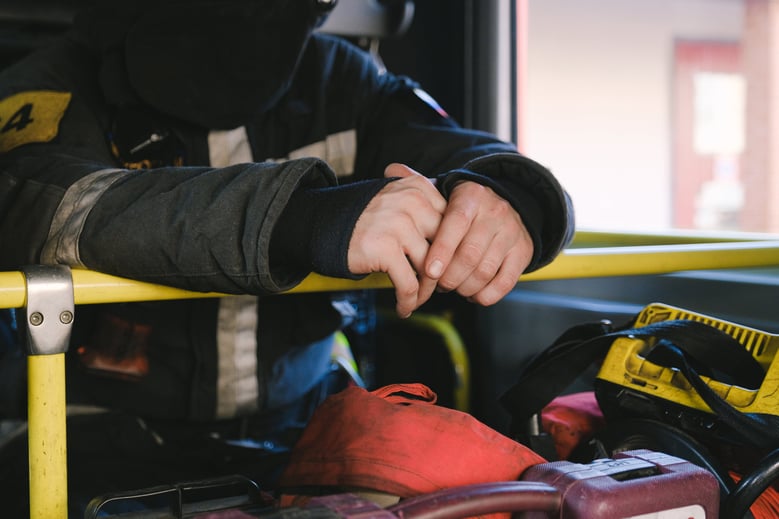
In addressing the legislators, Thomas urged them to keep their eyes on the lead. These skill games have been a lifeline for countless clubs and organizations. He emphasized their role as games of skill and envisions their progression over time. To Thomas, these games are a lifeline for clubs struggling to support themselves with liquor and small games of chance.
So, how have Pennsylvania Skill games affected Thomas Bartel personally? His ability to step in when the American Legion in Palmera faced a water line crisis, offering financial support for a new flagpole honoring veterans, exemplifies the depth of his commitment to using the supplemental revenue for community welfare. For Thomas, it's not just about financial gain and it's not just a business; it's about doing more for the community and leaving a lasting positive mark on the places he calls home.
The interview took an emotional turn when Thomas spoke about the jobs created because of Pennsylvania Skill games. His personal experience resonates with the broader impact—Miele Manufacturing sourcing wood from Lancaster, touchscreens from Philadelphia, and building scepters from Pittsburgh. The economic growth extends beyond Thomas's business by contributing to the expansion of other establishments. The creation of jobs, the purchase of new trucks, and the infusion of money back into the state are all tangible outcomes of the success of Pennsylvania Skill games.
Thomas Bartel's story is a testament to the transformative power of Pennsylvania Skill games. It's a narrative of communities saved, organizations revived, and lives touched by the positive impact of these games. More than just a source of entertainment, Pennsylvania Skill games, through individuals like Thomas, have become beacons of hope for struggling communities. They are, indeed, more than a game—they are a lifeline, a force for good, and a bridge for strengthening communities.
Discover more stories here.
Pace-O-Matic is committed to supporting local communities and helping them thrive.
Virginia
In Sterling, Virginia, Holtzman Oil has been making waves in the fuel business for nearly five decades. With humble beginnings in Mount Jackson, Virginia, the company has expanded its footprint across the Shenandoah Valley, Maryland, and West Virginia and recently ventured into North Carolina. In a recent interview with Rick Koontz, the Vice President of Holtzman Oil, we delved into the company's journey and how skill games have played a pivotal role in shaping the success of small business owners associated with the company.
Koontz's journey with Holtzman Oil began 49 years ago when he joined the company as a high school sophomore. Under the dynamic leadership of Bill Holtzman, the company's founder, Holtzman Oil grew from a small operation to a business with 350 employees. Koontz highlights Holtzman's empowering leadership style, emphasizing the company's commitment to treating associates as partners rather than mere employees.
Supplying 150 locations, approximately 100 of which are owned by the company, Holtzman Oil has a unique business model that leases stores to individual operators. These operators, such as Rich Gladu in Sterling, play a crucial role in determining the success of each location. Koontz underscores the significance of having a good operator who is innovative, creative, and capable of adapting the store to maximize profitability.
The interview touches upon the introduction of skill games in Holtzman Oil's stores. While not a new concept, these games had a significant impact on smaller, more rural stores. Koontz notes that the skill games brought in additional revenue, foot traffic, and employment opportunities. The removal of these games, coupled with the challenges posed by the pandemic, adversely affected fuel volumes and overall store profitability.
Koontz praises operators like Gladu, who leverages innovation to enhance the store's offerings. The skill games not only increased merchandise sales but also provided a platform for operators to experiment with new ideas, such as introducing food options like pizza. The games, acting as a catalyst, have led to improved store merchandise, increased inventory, and more employment opportunities.
The conversation with Koontz also addresses the challenges faced when skill games were temporarily removed. He emphasizes the critical role these games play in ensuring the success of operators and urges elected officials to recognize their importance. Koontz advocates for reinstating revenue-sharing models that were in place before, as these games contribute significantly to the financial health of both operators and the state.
Rick Koontz sheds light on how skill games have become an integral part of Holtzman Oil's success story. The positive impact on small business owners, especially during challenging times, underscores the need for continued support and recognition of the vital role played by these games in sustaining local businesses and communities. As Holtzman Oil expands its reach, the More Than A Game campaign stands as a testament to the transformative power of skill games in small businesses.
Discover More Stories
The above interview reflects experiences from when skill games were previously operating in Virginia. The games have since been disabled in compliance with state law. If you are interested in supporting skill games in Virginia, please visit www.joinvamac.com
Pace-O-Matic is committed to supporting local communities and helping them thrive.
Pennsylvania
In an interview with Joe Calla, President of Capital Vending, as part of Pace-O-Matic's More Than A Game campaign, we delved into the transformative journey of how skill games have significantly impacted small businesses, especially in the amusement industry. This insightful conversation with Calla sheds light on the evolution of the amusement business, the introduction of skill games, and the positive outcomes experienced by both business owners and their locations.
Based in Harrisburg, Pennsylvania, Capital Vending has been a family business since the 1960s. A second-generation owner, Calla joined the business in 1996. Over the years, the company has evolved from traditional amusements like CD jukeboxes and video games to becoming a comprehensive amusement service provider, offering a diverse range of equipment to bars, taverns, clubs, bowling alleys, and more across central Pennsylvania.

The amusement industry has witnessed significant changes over the decades, from 45-record jukeboxes in the '80s to CD jukeboxes in the '90s. The introduction of digital music with TouchTunes in the early 2000s marked a pivotal moment. However, the industry experienced a dip in the 2000s until the emergence of skill games.
Calla's first encounter with skill games came when Lou Miele introduced him to a small skill machine, emphasizing its potential for business growth. Initially cautious, it took Capital Vending a few months to understand and fully embrace this new technology. The company invested time in educating both employees and customers, paving the way for a successful integration of skill games into their offerings.
Within the first year of introducing skill games, Capital Vending noticed a substantial increase in revenue. This positive trend continued, leading to the hiring of additional employees and the ability to upgrade existing equipment. Small businesses, including bars and taverns, experienced a boost in revenue, enabling them to make improvements such as infrastructure upgrades, staff incentives, and even offering healthcare benefits.

COVID-19 posed challenges for the amusement industry, especially with the temporary closure of bars and restrictions on indoor dining. However, Capital Vending adapted by implementing creative solutions, such as placing speakers outside to continue generating jukebox revenue. Despite the hurdles, the company bounced back in 2021, and many locations under their service reported their best year ever.
Calla emphasizes the need for the regulation and taxation of skill games. By cleaning up the market and limiting the number of machines and their locations, he believes it would benefit both the industry and the state, generating additional tax revenue while ensuring responsible growth.
Calla’s interview highlights the positive impact of skill games on small businesses, demonstrating how they have been a driving force for growth, innovation, and resilience in the face of challenges. As part of Pace-O-Matic's More Than A Game campaign, stories like Joe Calla's showcase the multifaceted benefits of skill games, not just as entertainment but as catalysts for economic empowerment and community development.
Discover More Stories
Pace-O-Matic is committed to supporting local communities and helping them thrive.
Kentucky
In the bustling neighborhood of St. Matthews in Louisville, Kentucky, a small business owner named Jared Matthews has been making waves with his establishment, Fox Den. As part of the Pace-O-Matic More Than A Game campaign, we sat down with Jared to discuss the positive impact skill games have had on his business and the broader community. Within just six months of opening, Fox Den has become a local hotspot, offering patrons a unique blend of entertainment, camaraderie, and a chance to win some extra cash.
Matthews, the owner-operator of Fox Den, shared insights into his journey within the hospitality industry. Having worked for 14 years at Diamond, the predecessor to Fox Den, Matthews saw an opportunity to revitalize the space when the previous owner decided to exit the business. Opening its doors in April 2022, Fox Den underwent a significant facelift with a focus on maintaining its pool tables, enhancing the menu, and infusing a chef-driven club fare. Little did Matthews know that the addition of skill games would be a game-changer for his small business.
Matthews stumbled upon skill games through a friend who suggested he explore this innovative form of entertainment. Intrigued, he connected with Seth, a representative from the skill games provider. Initially hesitant, Matthews decided to introduce two skill games machines in Fox Den. The response from patrons was overwhelmingly positive, leading to the addition of two more machines.

Within the first month, Fox Den started generating revenue through skill games, with each subsequent month’s revenue surpassing the previous month’s. The combination of pool, music, sports, and skill games created a vibrant atmosphere, especially during football season and colder weather. The skill games not only added to the overall experience but also proved to be a valuable source of additional income for the establishment.
Matthews emphasized the financial benefits of skill games for small business owners. Running bars and restaurants involves significant expenses, and skill games provide an extra income stream without requiring extensive management. The ease of operations— a dedicated service provider handles all deposits and reporting—allows business owners to focus on core operations while generating extra revenue.
Skill games revenue has been instrumental in addressing maintenance costs and periodic upgrades at Fox Den. From rebuilding pool tables every six months to general improvements, the additional income from skill games has facilitated necessary enhancements without straining the business financially.

Matthews highlighted the importance of the TRT, or money machine, a service he insisted on including for integrating skill game machines. This automated system streamlines payouts, significantly reducing labor costs, minimizing human error, and allowing staff to focus on customer service rather than manual transactions.
Fox Den has become an integral part of the St. Matthews community, drawing in diverse patrons, including pool enthusiasts, music lovers, and sports fans. Skill games have added an extra layer of enjoyment, providing a unique entertainment option that contributes to the local economy. The money generated through skill games also supports initiatives aimed at giving back to the community, such as contributing to the Apron organization, which aids service industry workers in times of need.
Matthews addressed the misconception that skill games compete with casinos or horse tracks. He emphasized that skill games offer a distinct and casual entertainment experience, catering to a different audience. Unlike the grandeur of a casino visit, Fox Den provides a neighborhood pub atmosphere where patrons can relax, enjoy a game of pool, watch sports, and engage in skill games without the pressure of a high-stakes casino environment.
When asked about the potential impact of legislative changes regarding skill games, Matthews underscored their importance to small businesses. Skill games revenue significantly contributes to Fox Den's financial stability, covering bills and providing a cushion during challenging times. Removing skill games could have a substantial impact on the livelihoods of small business owners who rely on this additional income stream.

Reflecting on the challenges faced during the COVID-19 pandemic, Matthews shared the experiences of operating multiple restaurants during uncertain times. While some establishments faced closure due to the pandemic's economic impact, Fox Den adapted and thrived, thanks in part to the positive contribution of skill games revenue.
Matthews’ connection to St. Matthews, where he grew up and now resides, adds a layer of authenticity to Fox Den's role in the community. Describing St. Matthews as a neighborhood where people live, hang out, and support local businesses, Jared emphasized the importance of Fox Den being a local hub where regulars feel at home.
Matthews' journey with Fox Den showcases the transformative impact skill games can have on small businesses. From financial stability and community engagement to philanthropy, skill games have proven to be more than just a source of entertainment. They catalyze local economic growth, providing small business owners like Matthews with the means to thrive and give back to the communities they serve. As the debate around skill game legislation continues, stories like Fox Den's underscore the positive contributions and resilience of small businesses in the face of challenges.
Discover More Stories.
Disclaimer: The above interview reflects experiences from when skill games were previously operating in Kentucky. The games have since been disabled in compliance with state law. If you are interested in supporting skill games in Kentucky, please visit www.joinkymac.com.
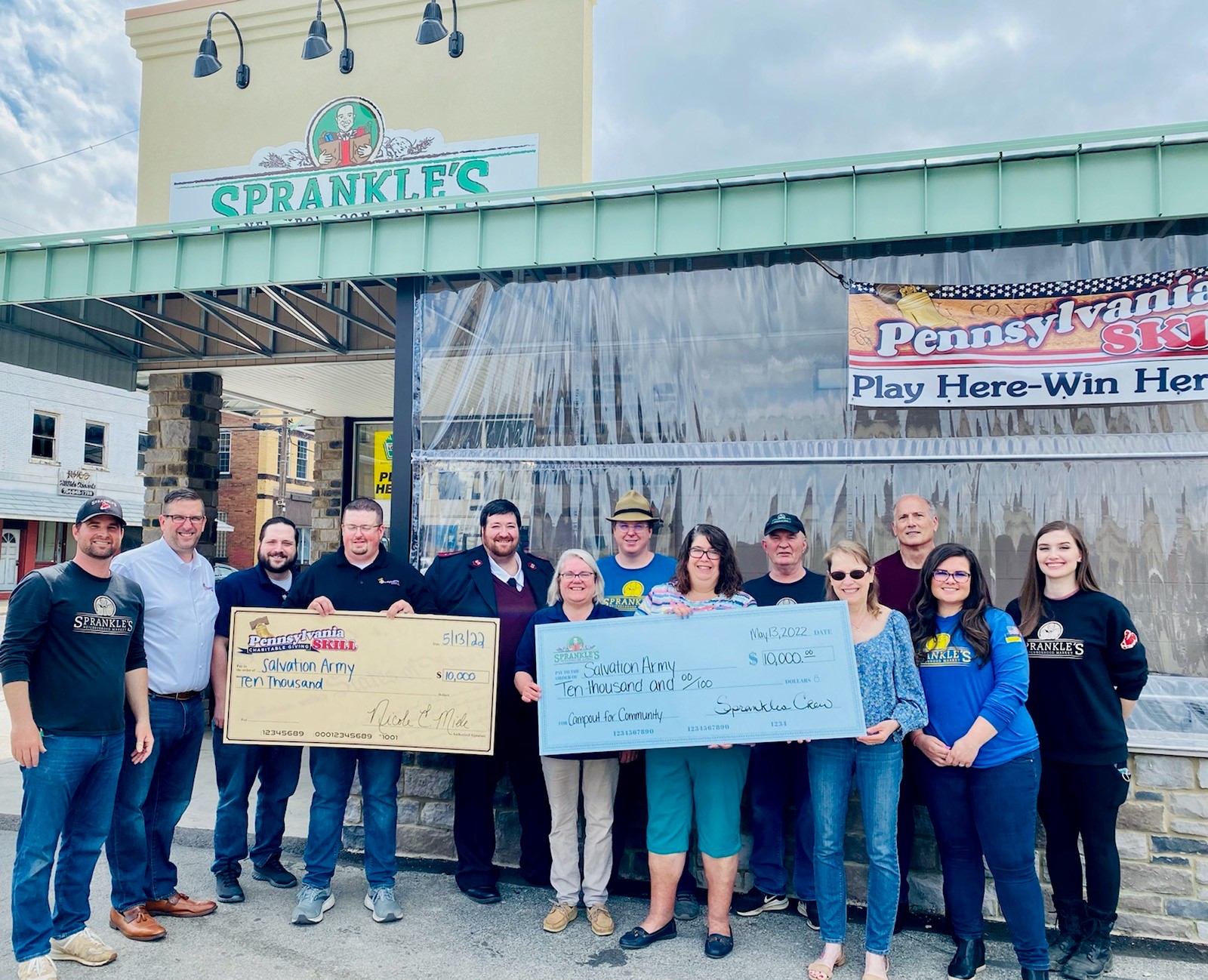
Pennsylvania Skill and Sprankles Partner to Donate $20,000 to Salvation Army
Pennsylvania
May 13, 2022
Support
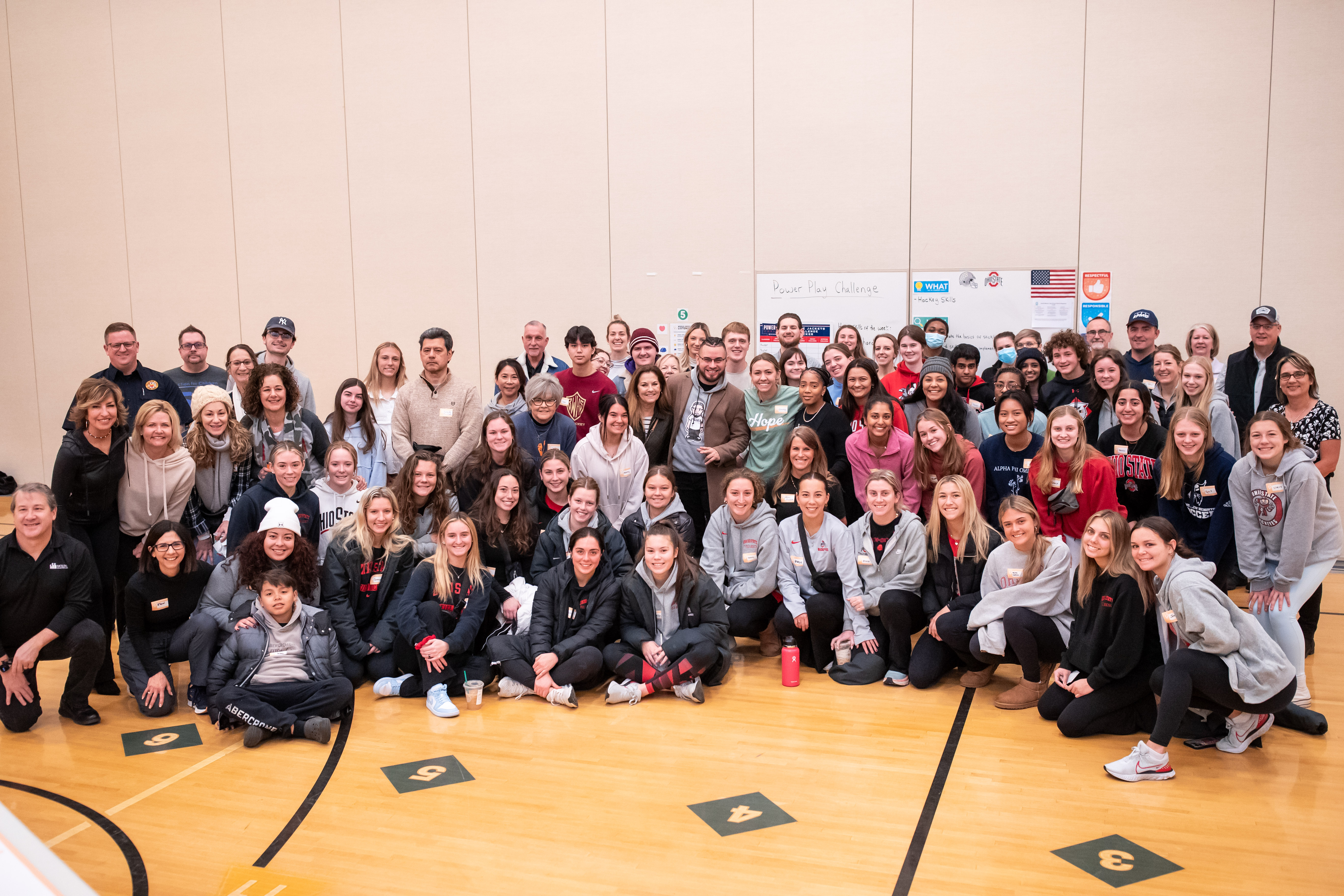
Pace-O-Matic Supports Emma Goldean's Partnership with Samaritan's Feet
Wyoming
January 16, 2023
Support


Amidst a Wildfire Crisis, Cowboy Skill Supports Mullen Fire Department with $15,000
Wyoming
February 15, 2022
Support

How Pennsylvania Skill Became A Lifeline For Communities In Need
Pennsylvania
April 11, 2023
Support

Small Business Triumph: The Transformative Power Of Skill Games
Pennsylvania
March 20, 2024
Success Support Partnership

Mastering Skill Games: A Blueprint For Small Business Growth
Kentucky
March 27, 2024
Success Support Restaurant + Bar Partnership
Pennsylvania
Wyoming
Wyoming
Kentucky
Former NFL quarterback and Louisville native Chris Redman is dedicated to giving back to his community. On a joint mission to fill hearts and fill stomachs, Redman partnered with Burning Barrel this past Thanksgiving to give away 1,000 turkeys to those in need.
The event took place in the parking lot of The Beer Depot, where Redman and his team handed out free turkeys to anyone who showed up. With lines forming early and all 1,000 turkeys given away by the end of the day, ultimately, the main goal was accomplished: the community was impacted and spirits were lifted.
Redman's commitment to his community is truly inspiring, and his partnership with Burning Barrel and Pace-O-Matic sets an example for businesses on how to make a positive impact. Their generosity made a real difference in the lives of those in the Louisville area, ensuring that many families had a Thanksgiving meal. Their actions serve as a reminder that even in difficult times, we can come together to help each other out.
Pennsylvania
Thomas Bartel, hailing from London, Pennsylvania, has dedicated himself to a cause that goes beyond business transactions. In a sit-down conversation with us, he shared the essence of what he does with Pennsylvania Skill games—giving them to organizations, clubs, and fire companies. His mission is clear: to support those who have been loyal customers for years, to help struggling clubs, and ultimately, to be a lifeline for communities in need.
He reminisced about the painful loss of the American Legion in Licking Township and the VFW near the casino in Granville Township, two clubs that succumbed to financial strain. Thomas firmly believes that had Pennsylvania Skill games been available earlier, he could have saved these establishments. The impact of these games is tangible, as seen in the resurgence of the VFW in Norristown. Since the introduction of skill games, it has undergone a remarkable transformation, investing in new floors and coolers, and actively contributing to various charities.
Thomas doesn't just see these skill games as entertainment; he sees them as saviors for organizations like the Goodwill Fire Company in Mares. Their purchase of a $550,000 tanker truck, funded in part by the revenue generated from skill games, speaks volumes about the real-world impact these games have on vital community services.

In addressing the legislators, Thomas urged them to keep their eyes on the lead. These skill games have been a lifeline for countless clubs and organizations. He emphasized their role as games of skill and envisions their progression over time. To Thomas, these games are a lifeline for clubs struggling to support themselves with liquor and small games of chance.
So, how have Pennsylvania Skill games affected Thomas Bartel personally? His ability to step in when the American Legion in Palmera faced a water line crisis, offering financial support for a new flagpole honoring veterans, exemplifies the depth of his commitment to using the supplemental revenue for community welfare. For Thomas, it's not just about financial gain and it's not just a business; it's about doing more for the community and leaving a lasting positive mark on the places he calls home.
The interview took an emotional turn when Thomas spoke about the jobs created because of Pennsylvania Skill games. His personal experience resonates with the broader impact—Miele Manufacturing sourcing wood from Lancaster, touchscreens from Philadelphia, and building scepters from Pittsburgh. The economic growth extends beyond Thomas's business by contributing to the expansion of other establishments. The creation of jobs, the purchase of new trucks, and the infusion of money back into the state are all tangible outcomes of the success of Pennsylvania Skill games.
Thomas Bartel's story is a testament to the transformative power of Pennsylvania Skill games. It's a narrative of communities saved, organizations revived, and lives touched by the positive impact of these games. More than just a source of entertainment, Pennsylvania Skill games, through individuals like Thomas, have become beacons of hope for struggling communities. They are, indeed, more than a game—they are a lifeline, a force for good, and a bridge for strengthening communities.
Discover more stories here.
Virginia
In Sterling, Virginia, Holtzman Oil has been making waves in the fuel business for nearly five decades. With humble beginnings in Mount Jackson, Virginia, the company has expanded its footprint across the Shenandoah Valley, Maryland, and West Virginia and recently ventured into North Carolina. In a recent interview with Rick Koontz, the Vice President of Holtzman Oil, we delved into the company's journey and how skill games have played a pivotal role in shaping the success of small business owners associated with the company.
Koontz's journey with Holtzman Oil began 49 years ago when he joined the company as a high school sophomore. Under the dynamic leadership of Bill Holtzman, the company's founder, Holtzman Oil grew from a small operation to a business with 350 employees. Koontz highlights Holtzman's empowering leadership style, emphasizing the company's commitment to treating associates as partners rather than mere employees.
Supplying 150 locations, approximately 100 of which are owned by the company, Holtzman Oil has a unique business model that leases stores to individual operators. These operators, such as Rich Gladu in Sterling, play a crucial role in determining the success of each location. Koontz underscores the significance of having a good operator who is innovative, creative, and capable of adapting the store to maximize profitability.
The interview touches upon the introduction of skill games in Holtzman Oil's stores. While not a new concept, these games had a significant impact on smaller, more rural stores. Koontz notes that the skill games brought in additional revenue, foot traffic, and employment opportunities. The removal of these games, coupled with the challenges posed by the pandemic, adversely affected fuel volumes and overall store profitability.
Koontz praises operators like Gladu, who leverages innovation to enhance the store's offerings. The skill games not only increased merchandise sales but also provided a platform for operators to experiment with new ideas, such as introducing food options like pizza. The games, acting as a catalyst, have led to improved store merchandise, increased inventory, and more employment opportunities.
The conversation with Koontz also addresses the challenges faced when skill games were temporarily removed. He emphasizes the critical role these games play in ensuring the success of operators and urges elected officials to recognize their importance. Koontz advocates for reinstating revenue-sharing models that were in place before, as these games contribute significantly to the financial health of both operators and the state.
Rick Koontz sheds light on how skill games have become an integral part of Holtzman Oil's success story. The positive impact on small business owners, especially during challenging times, underscores the need for continued support and recognition of the vital role played by these games in sustaining local businesses and communities. As Holtzman Oil expands its reach, the More Than A Game campaign stands as a testament to the transformative power of skill games in small businesses.
Discover More Stories
The above interview reflects experiences from when skill games were previously operating in Virginia. The games have since been disabled in compliance with state law. If you are interested in supporting skill games in Virginia, please visit www.joinvamac.com
Pennsylvania
In an interview with Joe Calla, President of Capital Vending, as part of Pace-O-Matic's More Than A Game campaign, we delved into the transformative journey of how skill games have significantly impacted small businesses, especially in the amusement industry. This insightful conversation with Calla sheds light on the evolution of the amusement business, the introduction of skill games, and the positive outcomes experienced by both business owners and their locations.
Based in Harrisburg, Pennsylvania, Capital Vending has been a family business since the 1960s. A second-generation owner, Calla joined the business in 1996. Over the years, the company has evolved from traditional amusements like CD jukeboxes and video games to becoming a comprehensive amusement service provider, offering a diverse range of equipment to bars, taverns, clubs, bowling alleys, and more across central Pennsylvania.

The amusement industry has witnessed significant changes over the decades, from 45-record jukeboxes in the '80s to CD jukeboxes in the '90s. The introduction of digital music with TouchTunes in the early 2000s marked a pivotal moment. However, the industry experienced a dip in the 2000s until the emergence of skill games.
Calla's first encounter with skill games came when Lou Miele introduced him to a small skill machine, emphasizing its potential for business growth. Initially cautious, it took Capital Vending a few months to understand and fully embrace this new technology. The company invested time in educating both employees and customers, paving the way for a successful integration of skill games into their offerings.
Within the first year of introducing skill games, Capital Vending noticed a substantial increase in revenue. This positive trend continued, leading to the hiring of additional employees and the ability to upgrade existing equipment. Small businesses, including bars and taverns, experienced a boost in revenue, enabling them to make improvements such as infrastructure upgrades, staff incentives, and even offering healthcare benefits.

COVID-19 posed challenges for the amusement industry, especially with the temporary closure of bars and restrictions on indoor dining. However, Capital Vending adapted by implementing creative solutions, such as placing speakers outside to continue generating jukebox revenue. Despite the hurdles, the company bounced back in 2021, and many locations under their service reported their best year ever.
Calla emphasizes the need for the regulation and taxation of skill games. By cleaning up the market and limiting the number of machines and their locations, he believes it would benefit both the industry and the state, generating additional tax revenue while ensuring responsible growth.
Calla’s interview highlights the positive impact of skill games on small businesses, demonstrating how they have been a driving force for growth, innovation, and resilience in the face of challenges. As part of Pace-O-Matic's More Than A Game campaign, stories like Joe Calla's showcase the multifaceted benefits of skill games, not just as entertainment but as catalysts for economic empowerment and community development.
Discover More Stories
Kentucky
In the bustling neighborhood of St. Matthews in Louisville, Kentucky, a small business owner named Jared Matthews has been making waves with his establishment, Fox Den. As part of the Pace-O-Matic More Than A Game campaign, we sat down with Jared to discuss the positive impact skill games have had on his business and the broader community. Within just six months of opening, Fox Den has become a local hotspot, offering patrons a unique blend of entertainment, camaraderie, and a chance to win some extra cash.
Matthews, the owner-operator of Fox Den, shared insights into his journey within the hospitality industry. Having worked for 14 years at Diamond, the predecessor to Fox Den, Matthews saw an opportunity to revitalize the space when the previous owner decided to exit the business. Opening its doors in April 2022, Fox Den underwent a significant facelift with a focus on maintaining its pool tables, enhancing the menu, and infusing a chef-driven club fare. Little did Matthews know that the addition of skill games would be a game-changer for his small business.
Matthews stumbled upon skill games through a friend who suggested he explore this innovative form of entertainment. Intrigued, he connected with Seth, a representative from the skill games provider. Initially hesitant, Matthews decided to introduce two skill games machines in Fox Den. The response from patrons was overwhelmingly positive, leading to the addition of two more machines.

Within the first month, Fox Den started generating revenue through skill games, with each subsequent month’s revenue surpassing the previous month’s. The combination of pool, music, sports, and skill games created a vibrant atmosphere, especially during football season and colder weather. The skill games not only added to the overall experience but also proved to be a valuable source of additional income for the establishment.
Matthews emphasized the financial benefits of skill games for small business owners. Running bars and restaurants involves significant expenses, and skill games provide an extra income stream without requiring extensive management. The ease of operations— a dedicated service provider handles all deposits and reporting—allows business owners to focus on core operations while generating extra revenue.
Skill games revenue has been instrumental in addressing maintenance costs and periodic upgrades at Fox Den. From rebuilding pool tables every six months to general improvements, the additional income from skill games has facilitated necessary enhancements without straining the business financially.

Matthews highlighted the importance of the TRT, or money machine, a service he insisted on including for integrating skill game machines. This automated system streamlines payouts, significantly reducing labor costs, minimizing human error, and allowing staff to focus on customer service rather than manual transactions.
Fox Den has become an integral part of the St. Matthews community, drawing in diverse patrons, including pool enthusiasts, music lovers, and sports fans. Skill games have added an extra layer of enjoyment, providing a unique entertainment option that contributes to the local economy. The money generated through skill games also supports initiatives aimed at giving back to the community, such as contributing to the Apron organization, which aids service industry workers in times of need.
Matthews addressed the misconception that skill games compete with casinos or horse tracks. He emphasized that skill games offer a distinct and casual entertainment experience, catering to a different audience. Unlike the grandeur of a casino visit, Fox Den provides a neighborhood pub atmosphere where patrons can relax, enjoy a game of pool, watch sports, and engage in skill games without the pressure of a high-stakes casino environment.
When asked about the potential impact of legislative changes regarding skill games, Matthews underscored their importance to small businesses. Skill games revenue significantly contributes to Fox Den's financial stability, covering bills and providing a cushion during challenging times. Removing skill games could have a substantial impact on the livelihoods of small business owners who rely on this additional income stream.

Reflecting on the challenges faced during the COVID-19 pandemic, Matthews shared the experiences of operating multiple restaurants during uncertain times. While some establishments faced closure due to the pandemic's economic impact, Fox Den adapted and thrived, thanks in part to the positive contribution of skill games revenue.
Matthews’ connection to St. Matthews, where he grew up and now resides, adds a layer of authenticity to Fox Den's role in the community. Describing St. Matthews as a neighborhood where people live, hang out, and support local businesses, Jared emphasized the importance of Fox Den being a local hub where regulars feel at home.
Matthews' journey with Fox Den showcases the transformative impact skill games can have on small businesses. From financial stability and community engagement to philanthropy, skill games have proven to be more than just a source of entertainment. They catalyze local economic growth, providing small business owners like Matthews with the means to thrive and give back to the communities they serve. As the debate around skill game legislation continues, stories like Fox Den's underscore the positive contributions and resilience of small businesses in the face of challenges.
Discover More Stories.
Disclaimer: The above interview reflects experiences from when skill games were previously operating in Kentucky. The games have since been disabled in compliance with state law. If you are interested in supporting skill games in Kentucky, please visit www.joinkymac.com.
They served and sacrificed for our freedom. Now, Pace-O-Matic has the opportunity to give back.
Pennsylvania
They served and sacrificed for our freedom. Now, Pace-O-Matic has the opportunity to give back.
Wyoming
They served and sacrificed for our freedom. Now, Pace-O-Matic has the opportunity to give back.
Pennsylvania
They served and sacrificed for our freedom. Now, Pace-O-Matic has the opportunity to give back.
Kentucky
Burning Barrel, powered by Pace-O-Matic, has had a significant positive impact on the American Legion Post in Bardstown, Kentucky. Commander Al recognized its potential to generate revenue and provide entertainment for members and visitors, and the results have been remarkable.
Since the installation of Burning Barrel skill games, the American Legion Post has seen a significant increase in revenue, which has been used to support various community projects, including scholarships for local students, donations to veterans' organizations, and facility improvements. Burning Barrel has also helped to increase foot traffic to the post, raising awareness about the American Legion and its mission to support veterans and their families.
Burning Barrel has provided an engaging and fun entertainment option for members and visitors alike, with a variety of games, including skill-based games that require strategy and decision-making. The games have been popular with both younger and older patrons, fostering a sense of community and camaraderie within the post.
Overall, Burning Barrel has had a positive impact on the American Legion Post in Bardstown, Kentucky. Thanks to Commander Al's vision and the support of the post's members, Burning Barrel has generated revenue, increased foot traffic, and provided entertainment for all.
They served and sacrificed for our freedom. Now, Pace-O-Matic has the opportunity to give back.
Kentucky
In Bardstown, Kentucky, the American Legion stands as a pillar of support for veterans and locals alike. In an interview with Commander Al, the driving force behind the American Legion's initiatives, we delved into the organization's commitment to service, its innovative approach to fundraising, and the introduction of skill games to further its mission.
Bardstown, a quaint town with a population of around 10,000, may seem small, but the American Legion's reach extends beyond its borders. Encompassing three different counties – Marion, Washington, and Nelson – the Legion serves as a beacon of hope for veterans in need. Commander Al emphasizes their primary goal: raising funds to assist veterans both financially and through essential services provided by their service officers.
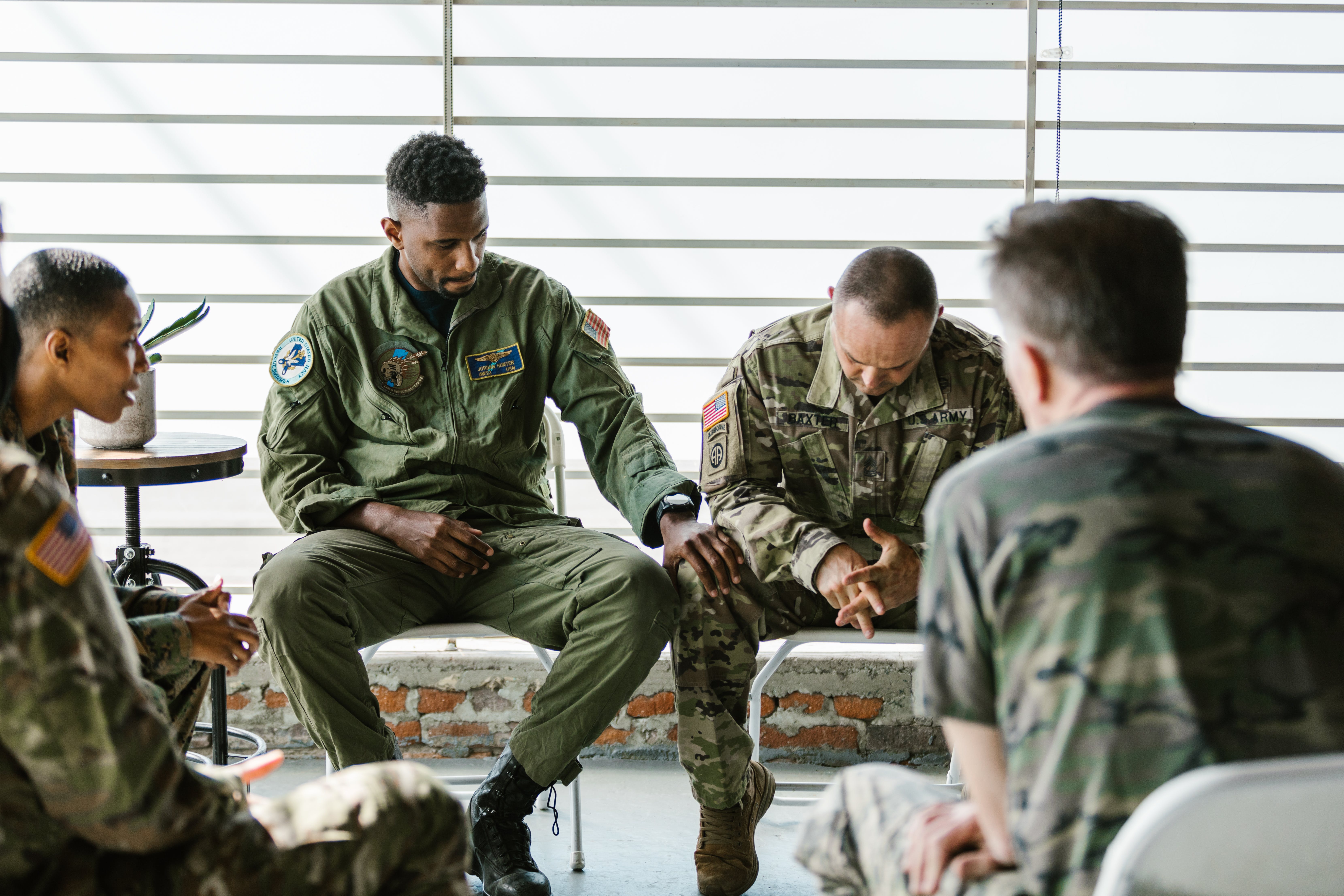
The Legion's impact is tangible. Al recounts the story of a veteran who lost his home in a fire. Thanks to the funds raised, the Legion was able to provide shelter for him during a difficult time. As veterans age and face mobility challenges, the Legion steps in by constructing ramps, making their lives more accessible. The Legion doesn't merely exist within the confines of its building; it actively engages with the community to uplift those who have served.
Amidst their commitment to aiding veterans, the American Legion sought new avenues to generate revenue. This search led them to the world of skill games. Al explains that the decision to introduce Burning Barrel skill games was rooted in the desire to create a sustainable source of income for the Legion. Burning Barrel, with its element of skill, intrigued Al, and he believed it could be a unique and engaging way to raise funds.
What sets these skill games apart is the use of skill. Al highlights that it's not just about pulling a lever; it's a test of skill and strategy. As Al stated, "It's not pulling a lever and whatever comes up; it involves skill and looking at your picture that comes up and see if you can use your wildcard to create a tic tac toe." He has personally played the game, acknowledging a learning curve but expressing optimism that as more people understand it, the game will gain popularity.
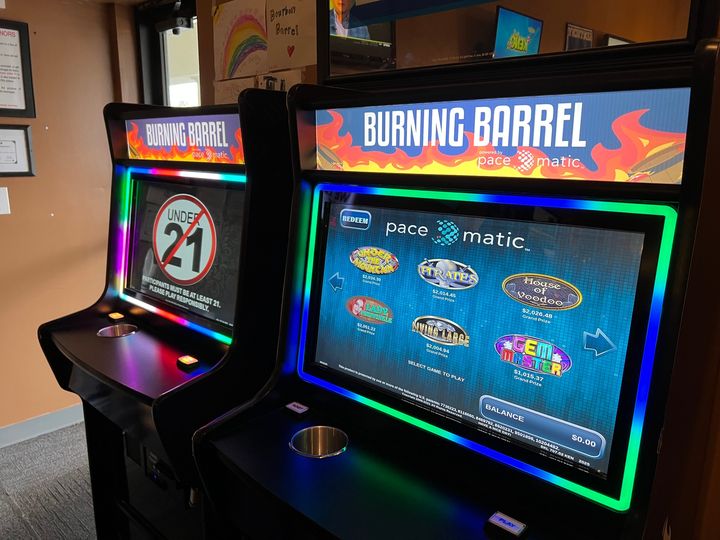
The American Legion is not only about fundraising; it's about fostering connections within the community. Al shares a heartwarming tale of Bardstown High School students surprising the Legion with a giant banner, signed by students, on Veterans Day. The Legion reciprocated by presenting an American flag and teaching the art of flag folding to the students. This event served as a bridge, connecting generations and educating the youth about the Legion's purpose.
Explaining the Legion's significance to the community, Al notes that the Legion is known for its generosity. When people in Bardstown need help, they turn to the Legion. Whether it's providing a venue for a fundraiser or supporting a family facing adversity, the Legion is a dependable source of assistance.
Al reiterates that the funds generated from these skill games will primarily go towards supporting veterans, emphasizing that this remains the Legion's core mission. However, the Legion's commitment to the community goes beyond veterans, extending a helping hand wherever it is needed.
The American Legion in Bardstown, Kentucky, stands as a testament to the power of community, service, and innovation. In weaving skill games into their fundraising strategy, they not only embrace modernity but also provide a fun and engaging way for people to contribute to a noble cause. The impact of Burning Barrel skill games for the American Legion is indeed more than a game; it's a lifeline for veterans and a beacon of support for the community they proudly serve.
They served and sacrificed for our freedom. Now, Pace-O-Matic has the opportunity to give back.
Pennsylvania
The powerful speech by Commander Stephen Holmes of Post 733 in Harrisburg shed light on a crucial aspect: the vital role that Pennsylvania Skill games play in the Legion's ability to support veterans and the community. His words resonated with the audience, emphasizing how skill games have been a driving force behind their ability to provide critical assistance and support. At the core of the American Legion's values lie commitments to veterans and the community. Holmes passionately conveyed how the absence of these skill games would have a profound negative impact. He highlighted the grim reality of veterans battling mental health issues, even resulting in tragic outcomes such as suicide. The Legion's efforts to combat this include providing counseling, referrals to support centers, and tangible aid to homeless veterans.
.jpg?width=5472&height=3648&name=Paceomatic_UOG-0730%20(4).jpg)
Skill games, surprisingly for some, are a linchpin for the Legion's ability to fund these initiatives. Contrary to popular belief, federal funding doesn't cover the Legion's activities. Instead, they rely on self-generated funds. Holmes aptly pointed out that without skill games, achieving these goals would be close to impossible. From organizing care packages and providing meals to homeless vets to supporting children's activities like the young drill team, the financial support generated from these games is indispensable.
The speech highlighted how these games not only sustain critical programs but also enable the Legion to carry out significant upgrades within their facilities. The remodeling, new flooring, and other improvements were made possible because of the revenue generated through these skill games.
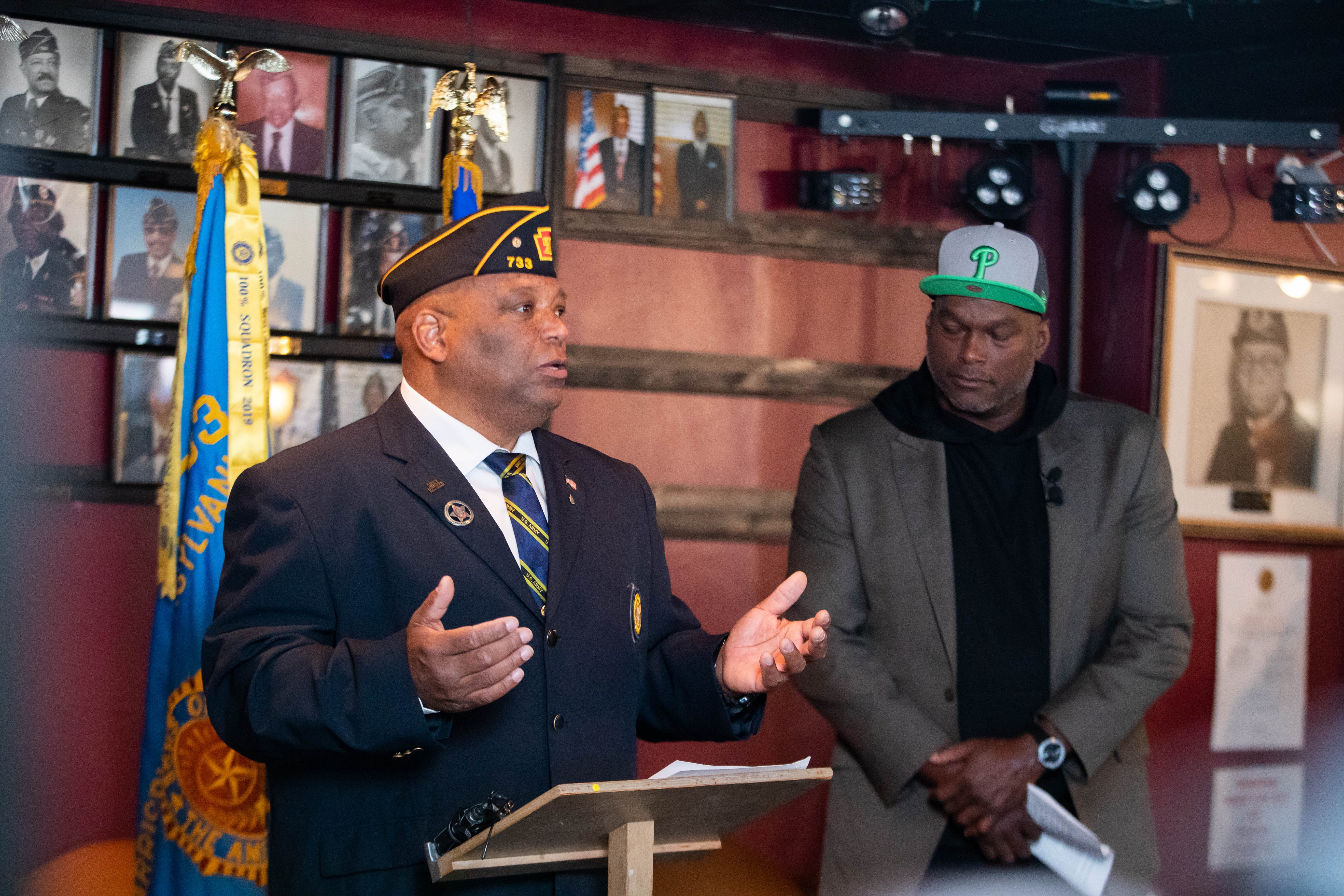
Commander Holmes' address underscored the immense impact these seemingly small-scale games have on the Legion's ability to serve the community and veterans in need. The games aren't just about entertainment; they are a lifeline for those who've served their country and are now in need of support.
In essence, Holmes' passionate plea for understanding and appreciation of the value of skill games within the American Legion was a powerful testament to their significance. They are the backbone that sustains critical initiatives, aids struggling veterans, and strengthens the Legion's ability to support its community.
They served and sacrificed for our freedom. Now, Pace-O-Matic has the opportunity to give back.
Pennsylvania
In a sit-down interview, we had the opportunity to speak with Eric Hoover, the President of the Fraternal Order of Eagles 970 in Williamsport, Pennsylvania. The conversation shed light on the significant positive impact of Pennsylvania Skill games powered by Pace-O-Matic on small businesses and community organizations like the Fraternal Order of Eagles.
Eric Hoover, with his 36 years of membership, shared insights into the Fraternal Order of Eagles, a nonprofit organization committed to the motto "people helping people." Established in 1898 in Seattle, Washington, the organization boasts a rich history of charitable contributions, including being the first to advocate for Mother's Day in 1904 and pledging $25 million for a Diabetes Research Center in 2008.
The Fraternal Order of Eagles, based in Williamsport, Pennsylvania, actively engages in community support, with approximately 600 members locally. Eric highlighted various initiatives, including donations to Toys for Tots, purchasing medical beds for UPMC, and providing assistance to individuals facing challenges like a bartender diagnosed with cancer.
Introduced to Pennsylvania Skill games in 2018 by Miele Amusement, the Fraternal Order of Eagles embraced the concept, recognizing its potential to generate revenue. The skill game revenue proved instrumental in hiring additional employees, renovating the building, and upgrading equipment. Eric emphasized the importance of these funds in supporting their charitable activities and enhancing community outreach.
Pennsylvania Skill played a crucial role in sustaining the Fraternal Order of Eagles during the challenging year of 2020. While many organizations struggled, the additional revenue from Pennsylvania Skill helped them recover, supporting employees and maintaining their commitment to community donations.
Eric highlighted the rising expenses faced by organizations like the Fraternal Order of Eagles and expressed concern that without this additional revenue from Pennsylvania Skill games, they might face difficulties in remaining open. The potential loss of revenue could impact their ability to hire employees, upgrade equipment, and contribute to the community the same they have for years.
In support of Pennsylvania Skill, Eric conveyed his excitement and the positive impact on customers. He encouraged legislators to experience the games firsthand, emphasizing their role in bringing revenue, friendship, and excitement to establishments. Eric also talked about the potential negative consequences, stating that without Pennsylvania Skill games, the community might lose vital funds that contribute to charitable organizations.
The interview with Eric Hoover, President of the Fraternal Order of Eagles 970, provides valuable insights into the positive impact of skill games on small businesses and community organizations. As skill games face legislative considerations, Eric advocates for their regulation, recognizing their crucial role in sustaining the operations of organizations dedicated to "people helping people." The story of the Fraternal Order of Eagles is a testament to the transformative power of skill games in supporting local communities and maintaining charitable endeavors.


Pennsylvania Skill Supports Non-Profit, Veterans' Promise, with $5,000 Donation
Pennsylvania
April 29, 2021
Service


Pace-O-Matic Donates $85,000 to Veterans During CFD Sponsored by Cowboy Skill
Wyoming
June 30, 2022
Service
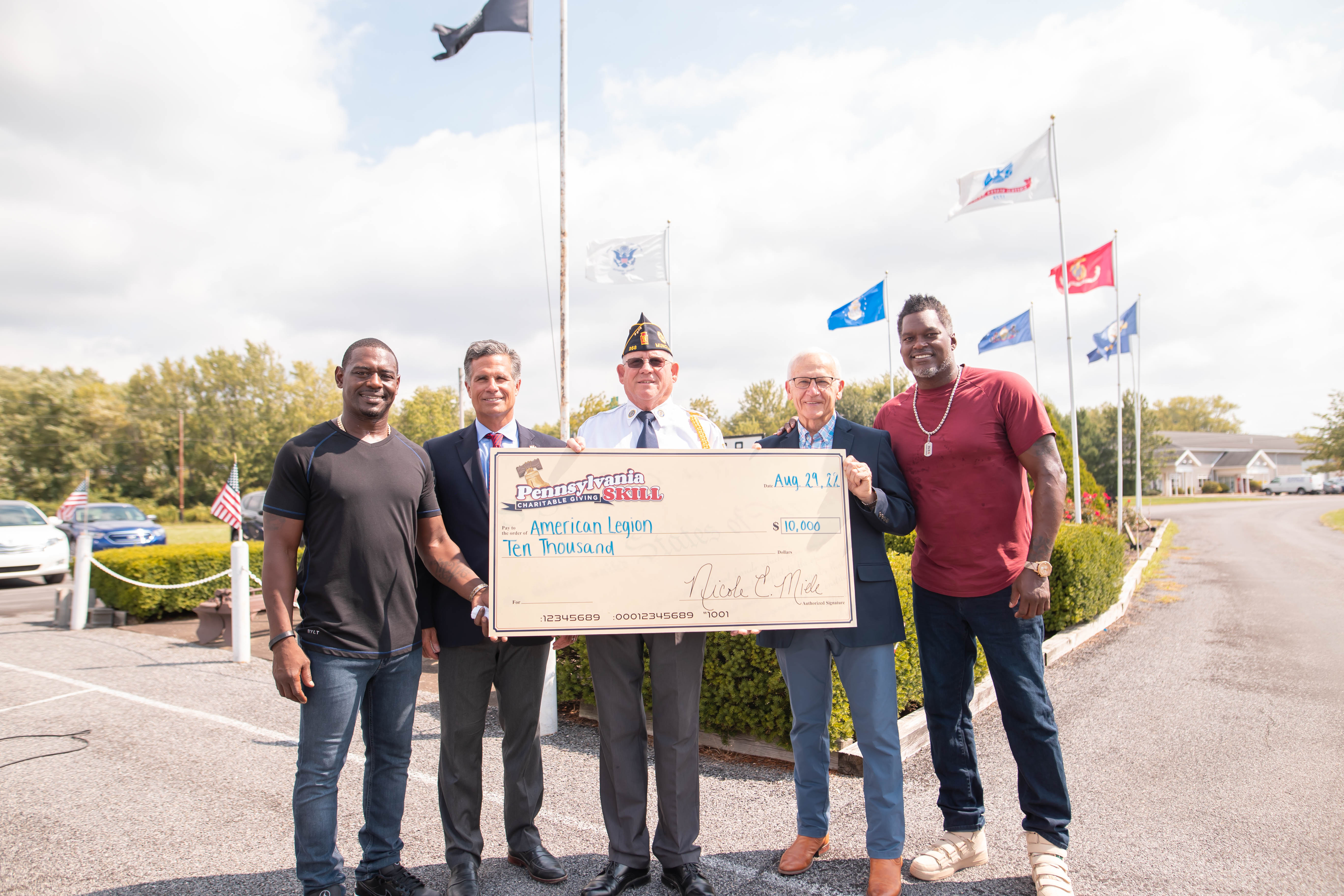
Senators and Legends Help Pennsylvania Skill Present $10,00 to American Legion
Pennsylvania
September 1, 2022
Service

The American Legion's Mission Beyond Skillful Play With Burning Barrel
Kentucky
July 3, 2023
Service Community
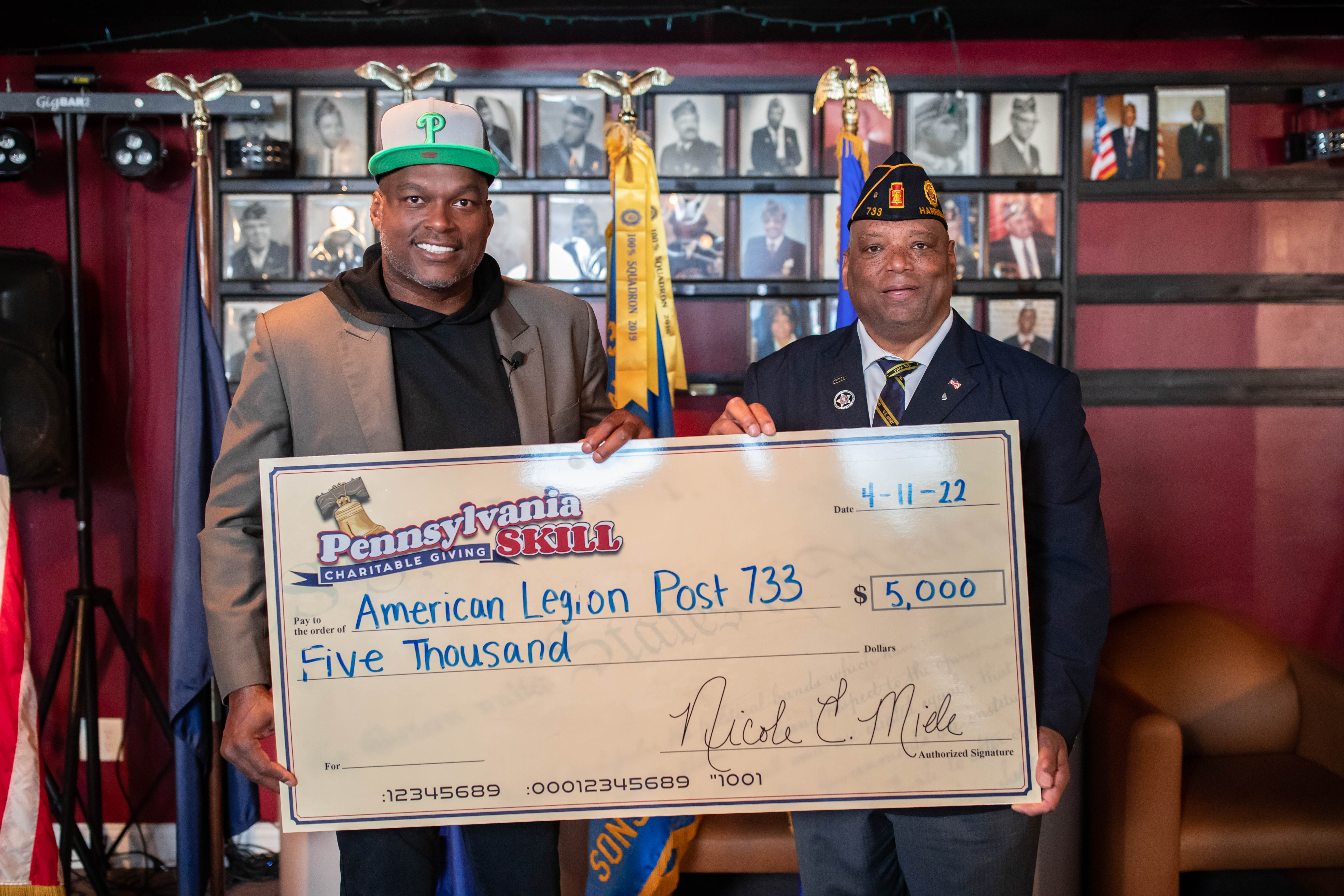
Skill Games And Their Transformative Impact Beyond Play
Pennsylvania
July 26, 2023
Service Community
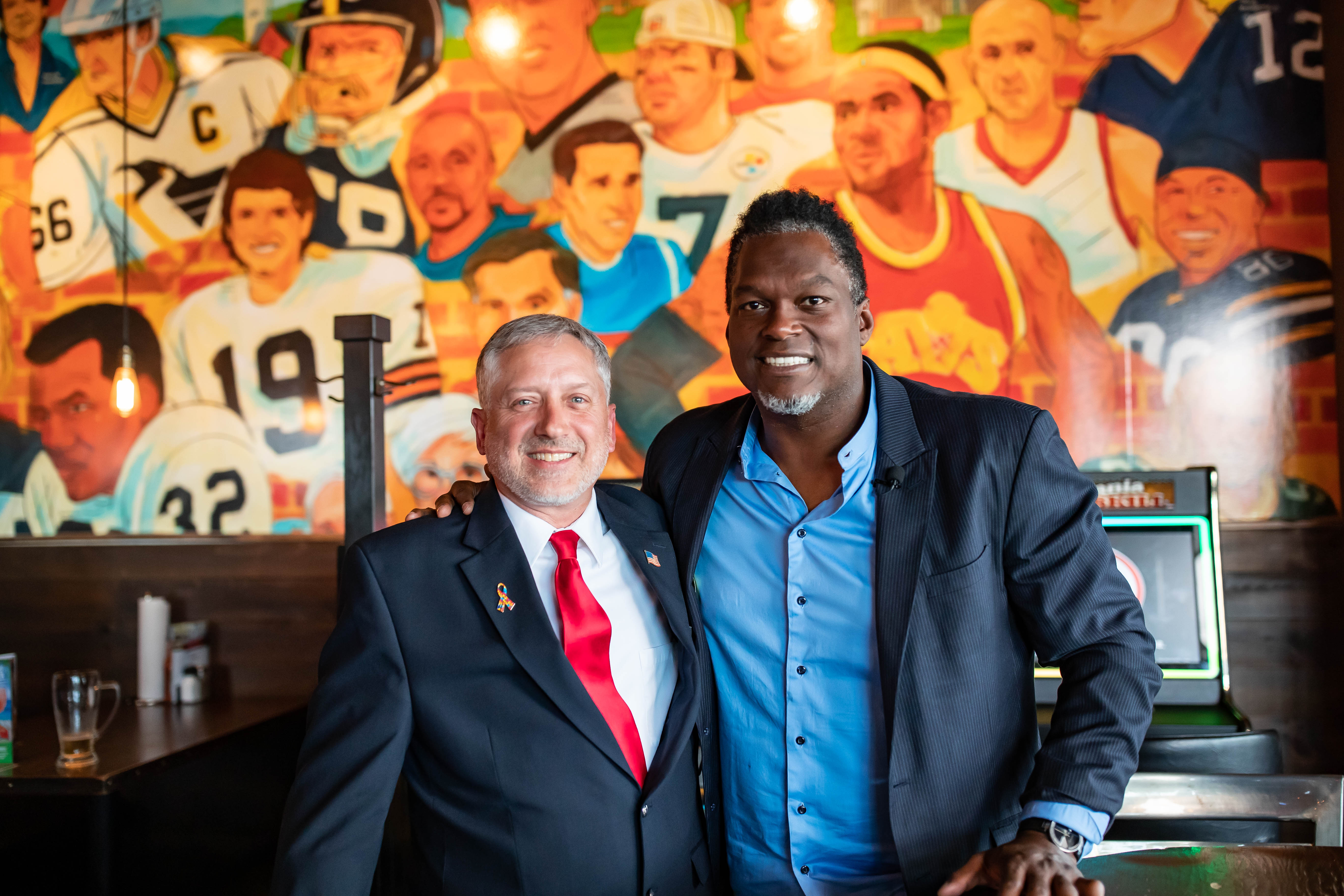
The Positive Impact Of Skill Games: A Conversation With Eric Hoover, President Of Fraternal Order Of Eagles 970
Pennsylvania
August 15, 2023
Service Partnership Community
Pennsylvania
Wyoming
Pennsylvania
Kentucky
Burning Barrel, powered by Pace-O-Matic, has had a significant positive impact on the American Legion Post in Bardstown, Kentucky. Commander Al recognized its potential to generate revenue and provide entertainment for members and visitors, and the results have been remarkable.
Since the installation of Burning Barrel skill games, the American Legion Post has seen a significant increase in revenue, which has been used to support various community projects, including scholarships for local students, donations to veterans' organizations, and facility improvements. Burning Barrel has also helped to increase foot traffic to the post, raising awareness about the American Legion and its mission to support veterans and their families.
Burning Barrel has provided an engaging and fun entertainment option for members and visitors alike, with a variety of games, including skill-based games that require strategy and decision-making. The games have been popular with both younger and older patrons, fostering a sense of community and camaraderie within the post.
Overall, Burning Barrel has had a positive impact on the American Legion Post in Bardstown, Kentucky. Thanks to Commander Al's vision and the support of the post's members, Burning Barrel has generated revenue, increased foot traffic, and provided entertainment for all.
Kentucky
In Bardstown, Kentucky, the American Legion stands as a pillar of support for veterans and locals alike. In an interview with Commander Al, the driving force behind the American Legion's initiatives, we delved into the organization's commitment to service, its innovative approach to fundraising, and the introduction of skill games to further its mission.
Bardstown, a quaint town with a population of around 10,000, may seem small, but the American Legion's reach extends beyond its borders. Encompassing three different counties – Marion, Washington, and Nelson – the Legion serves as a beacon of hope for veterans in need. Commander Al emphasizes their primary goal: raising funds to assist veterans both financially and through essential services provided by their service officers.

The Legion's impact is tangible. Al recounts the story of a veteran who lost his home in a fire. Thanks to the funds raised, the Legion was able to provide shelter for him during a difficult time. As veterans age and face mobility challenges, the Legion steps in by constructing ramps, making their lives more accessible. The Legion doesn't merely exist within the confines of its building; it actively engages with the community to uplift those who have served.
Amidst their commitment to aiding veterans, the American Legion sought new avenues to generate revenue. This search led them to the world of skill games. Al explains that the decision to introduce Burning Barrel skill games was rooted in the desire to create a sustainable source of income for the Legion. Burning Barrel, with its element of skill, intrigued Al, and he believed it could be a unique and engaging way to raise funds.
What sets these skill games apart is the use of skill. Al highlights that it's not just about pulling a lever; it's a test of skill and strategy. As Al stated, "It's not pulling a lever and whatever comes up; it involves skill and looking at your picture that comes up and see if you can use your wildcard to create a tic tac toe." He has personally played the game, acknowledging a learning curve but expressing optimism that as more people understand it, the game will gain popularity.

The American Legion is not only about fundraising; it's about fostering connections within the community. Al shares a heartwarming tale of Bardstown High School students surprising the Legion with a giant banner, signed by students, on Veterans Day. The Legion reciprocated by presenting an American flag and teaching the art of flag folding to the students. This event served as a bridge, connecting generations and educating the youth about the Legion's purpose.
Explaining the Legion's significance to the community, Al notes that the Legion is known for its generosity. When people in Bardstown need help, they turn to the Legion. Whether it's providing a venue for a fundraiser or supporting a family facing adversity, the Legion is a dependable source of assistance.
Al reiterates that the funds generated from these skill games will primarily go towards supporting veterans, emphasizing that this remains the Legion's core mission. However, the Legion's commitment to the community goes beyond veterans, extending a helping hand wherever it is needed.
The American Legion in Bardstown, Kentucky, stands as a testament to the power of community, service, and innovation. In weaving skill games into their fundraising strategy, they not only embrace modernity but also provide a fun and engaging way for people to contribute to a noble cause. The impact of Burning Barrel skill games for the American Legion is indeed more than a game; it's a lifeline for veterans and a beacon of support for the community they proudly serve.
Pennsylvania
The powerful speech by Commander Stephen Holmes of Post 733 in Harrisburg shed light on a crucial aspect: the vital role that Pennsylvania Skill games play in the Legion's ability to support veterans and the community. His words resonated with the audience, emphasizing how skill games have been a driving force behind their ability to provide critical assistance and support. At the core of the American Legion's values lie commitments to veterans and the community. Holmes passionately conveyed how the absence of these skill games would have a profound negative impact. He highlighted the grim reality of veterans battling mental health issues, even resulting in tragic outcomes such as suicide. The Legion's efforts to combat this include providing counseling, referrals to support centers, and tangible aid to homeless veterans.
.jpg?width=5472&height=3648&name=Paceomatic_UOG-0730%20(4).jpg)
Skill games, surprisingly for some, are a linchpin for the Legion's ability to fund these initiatives. Contrary to popular belief, federal funding doesn't cover the Legion's activities. Instead, they rely on self-generated funds. Holmes aptly pointed out that without skill games, achieving these goals would be close to impossible. From organizing care packages and providing meals to homeless vets to supporting children's activities like the young drill team, the financial support generated from these games is indispensable.
The speech highlighted how these games not only sustain critical programs but also enable the Legion to carry out significant upgrades within their facilities. The remodeling, new flooring, and other improvements were made possible because of the revenue generated through these skill games.

Commander Holmes' address underscored the immense impact these seemingly small-scale games have on the Legion's ability to serve the community and veterans in need. The games aren't just about entertainment; they are a lifeline for those who've served their country and are now in need of support.
In essence, Holmes' passionate plea for understanding and appreciation of the value of skill games within the American Legion was a powerful testament to their significance. They are the backbone that sustains critical initiatives, aids struggling veterans, and strengthens the Legion's ability to support its community.
Pennsylvania
In a sit-down interview, we had the opportunity to speak with Eric Hoover, the President of the Fraternal Order of Eagles 970 in Williamsport, Pennsylvania. The conversation shed light on the significant positive impact of Pennsylvania Skill games powered by Pace-O-Matic on small businesses and community organizations like the Fraternal Order of Eagles.
Eric Hoover, with his 36 years of membership, shared insights into the Fraternal Order of Eagles, a nonprofit organization committed to the motto "people helping people." Established in 1898 in Seattle, Washington, the organization boasts a rich history of charitable contributions, including being the first to advocate for Mother's Day in 1904 and pledging $25 million for a Diabetes Research Center in 2008.
The Fraternal Order of Eagles, based in Williamsport, Pennsylvania, actively engages in community support, with approximately 600 members locally. Eric highlighted various initiatives, including donations to Toys for Tots, purchasing medical beds for UPMC, and providing assistance to individuals facing challenges like a bartender diagnosed with cancer.
Introduced to Pennsylvania Skill games in 2018 by Miele Amusement, the Fraternal Order of Eagles embraced the concept, recognizing its potential to generate revenue. The skill game revenue proved instrumental in hiring additional employees, renovating the building, and upgrading equipment. Eric emphasized the importance of these funds in supporting their charitable activities and enhancing community outreach.
Pennsylvania Skill played a crucial role in sustaining the Fraternal Order of Eagles during the challenging year of 2020. While many organizations struggled, the additional revenue from Pennsylvania Skill helped them recover, supporting employees and maintaining their commitment to community donations.
Eric highlighted the rising expenses faced by organizations like the Fraternal Order of Eagles and expressed concern that without this additional revenue from Pennsylvania Skill games, they might face difficulties in remaining open. The potential loss of revenue could impact their ability to hire employees, upgrade equipment, and contribute to the community the same they have for years.
In support of Pennsylvania Skill, Eric conveyed his excitement and the positive impact on customers. He encouraged legislators to experience the games firsthand, emphasizing their role in bringing revenue, friendship, and excitement to establishments. Eric also talked about the potential negative consequences, stating that without Pennsylvania Skill games, the community might lose vital funds that contribute to charitable organizations.
The interview with Eric Hoover, President of the Fraternal Order of Eagles 970, provides valuable insights into the positive impact of skill games on small businesses and community organizations. As skill games face legislative considerations, Eric advocates for their regulation, recognizing their crucial role in sustaining the operations of organizations dedicated to "people helping people." The story of the Fraternal Order of Eagles is a testament to the transformative power of skill games in supporting local communities and maintaining charitable endeavors.
Pace-O-Matic is the leading developer of legally compliant games of skill in the United States.